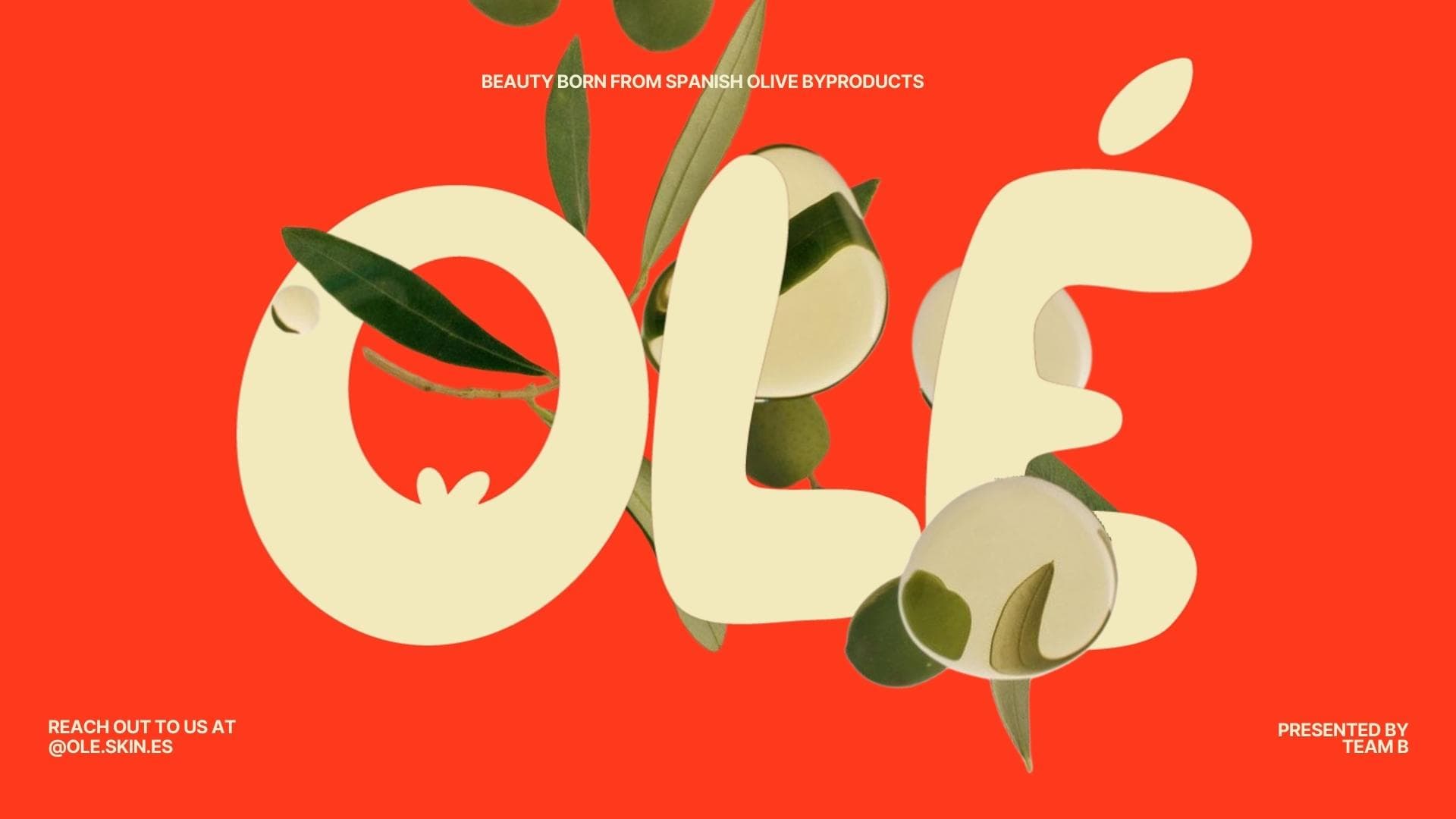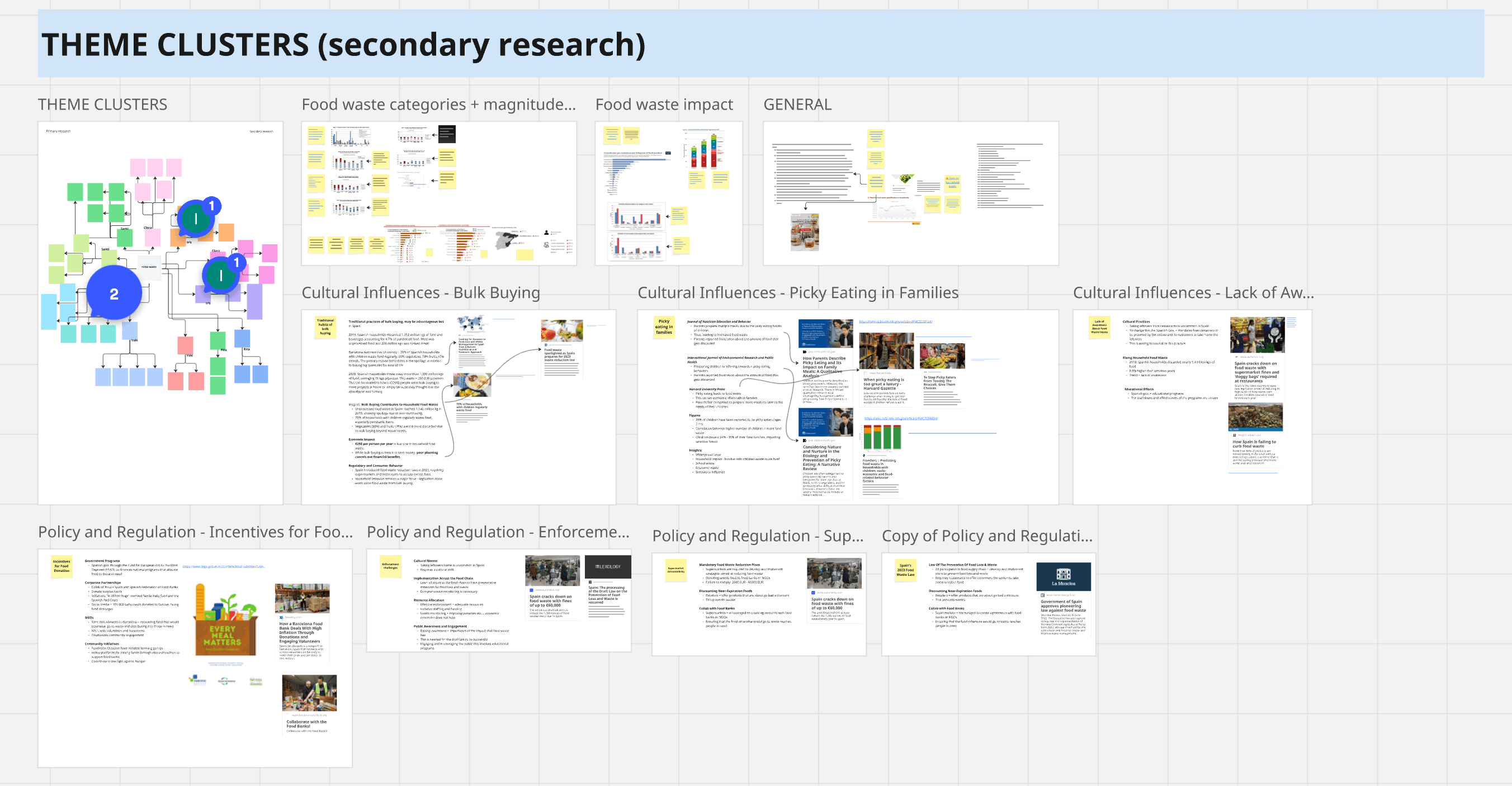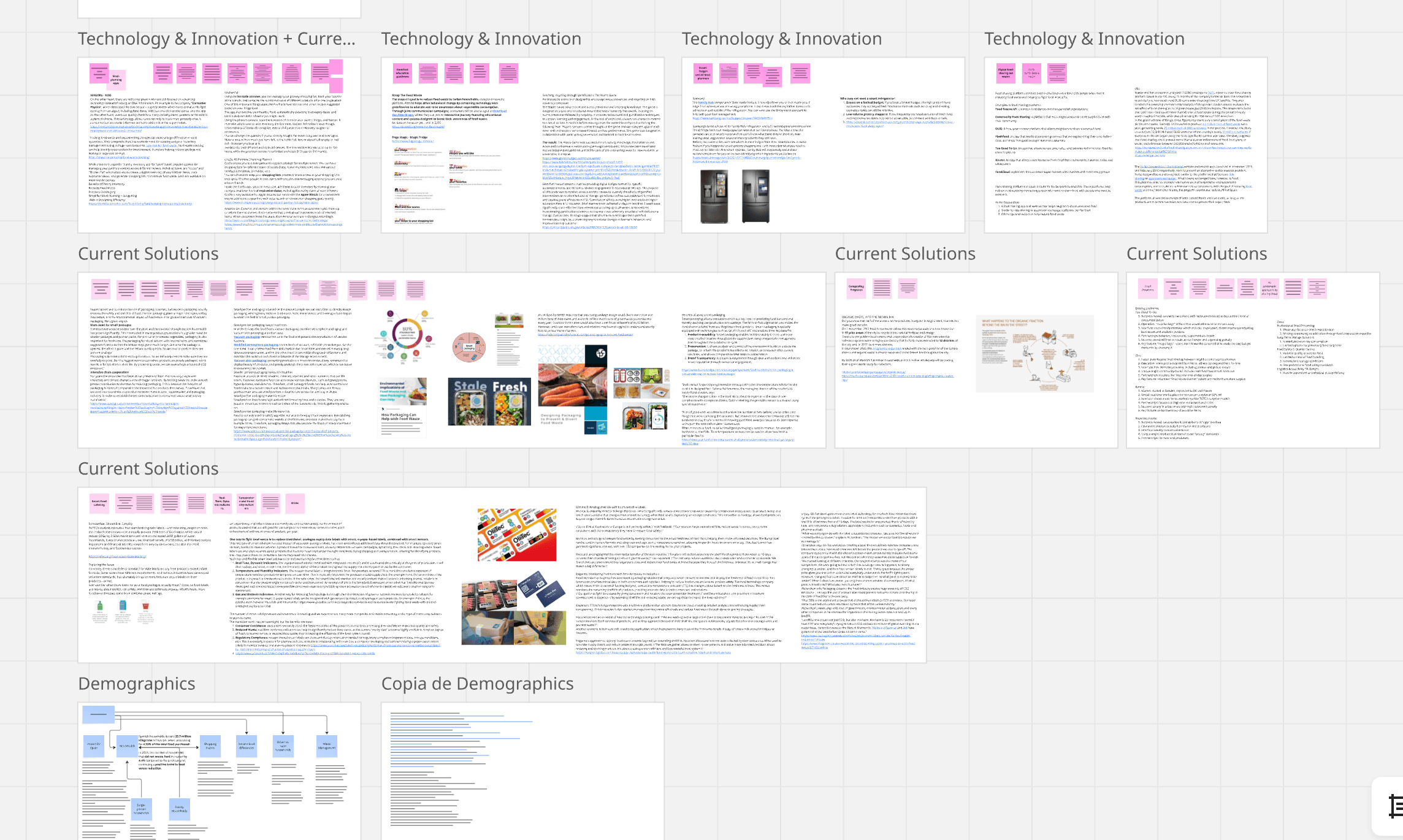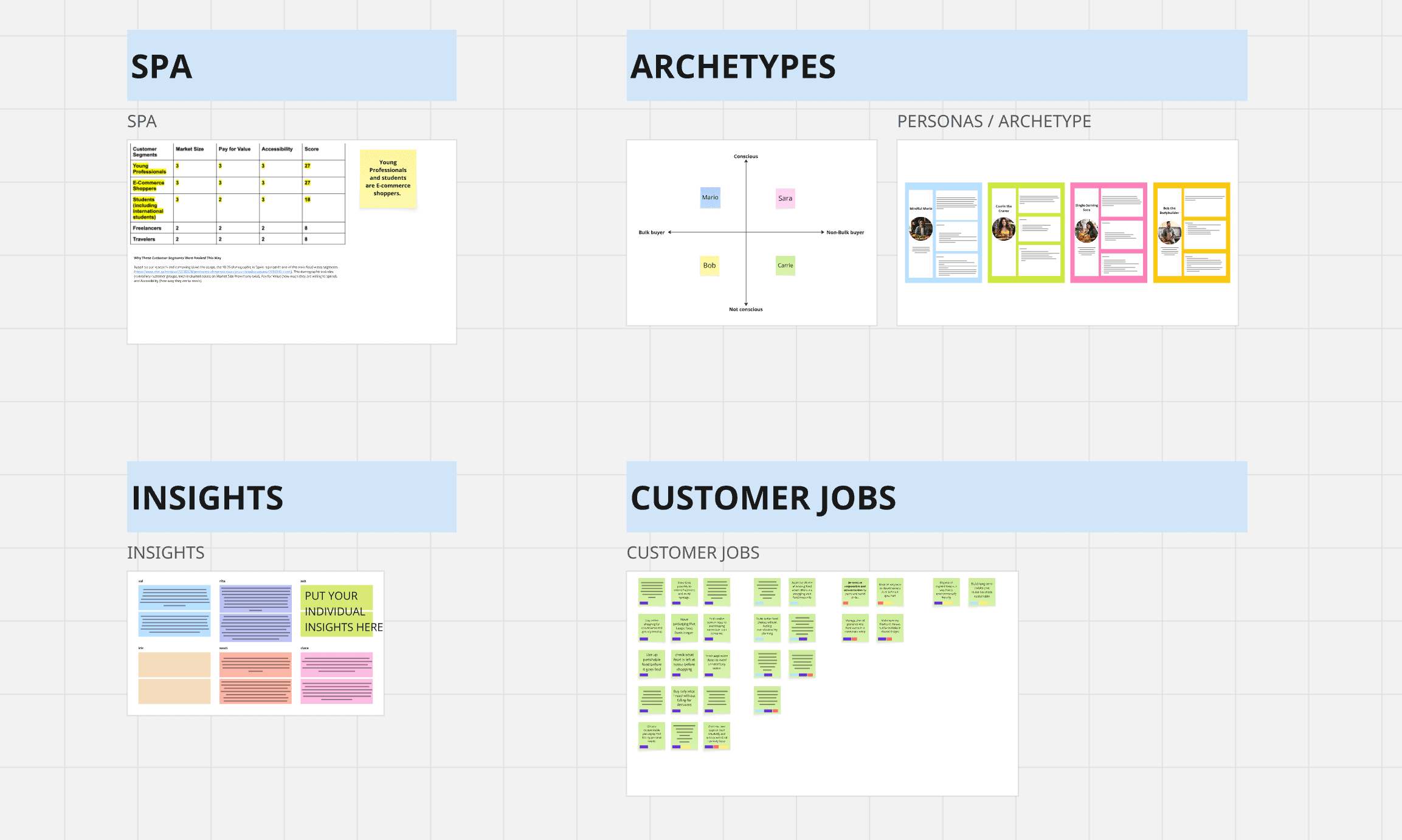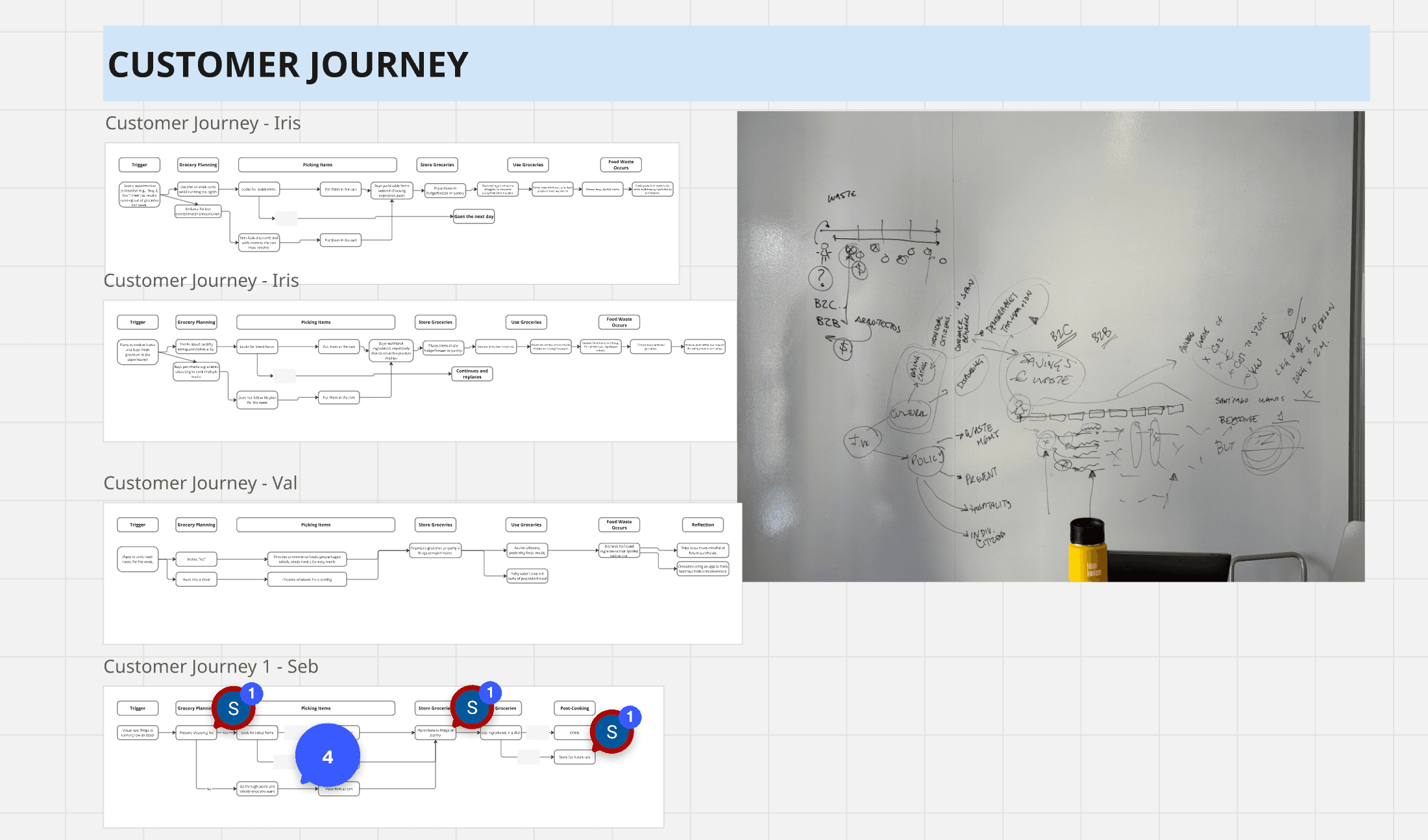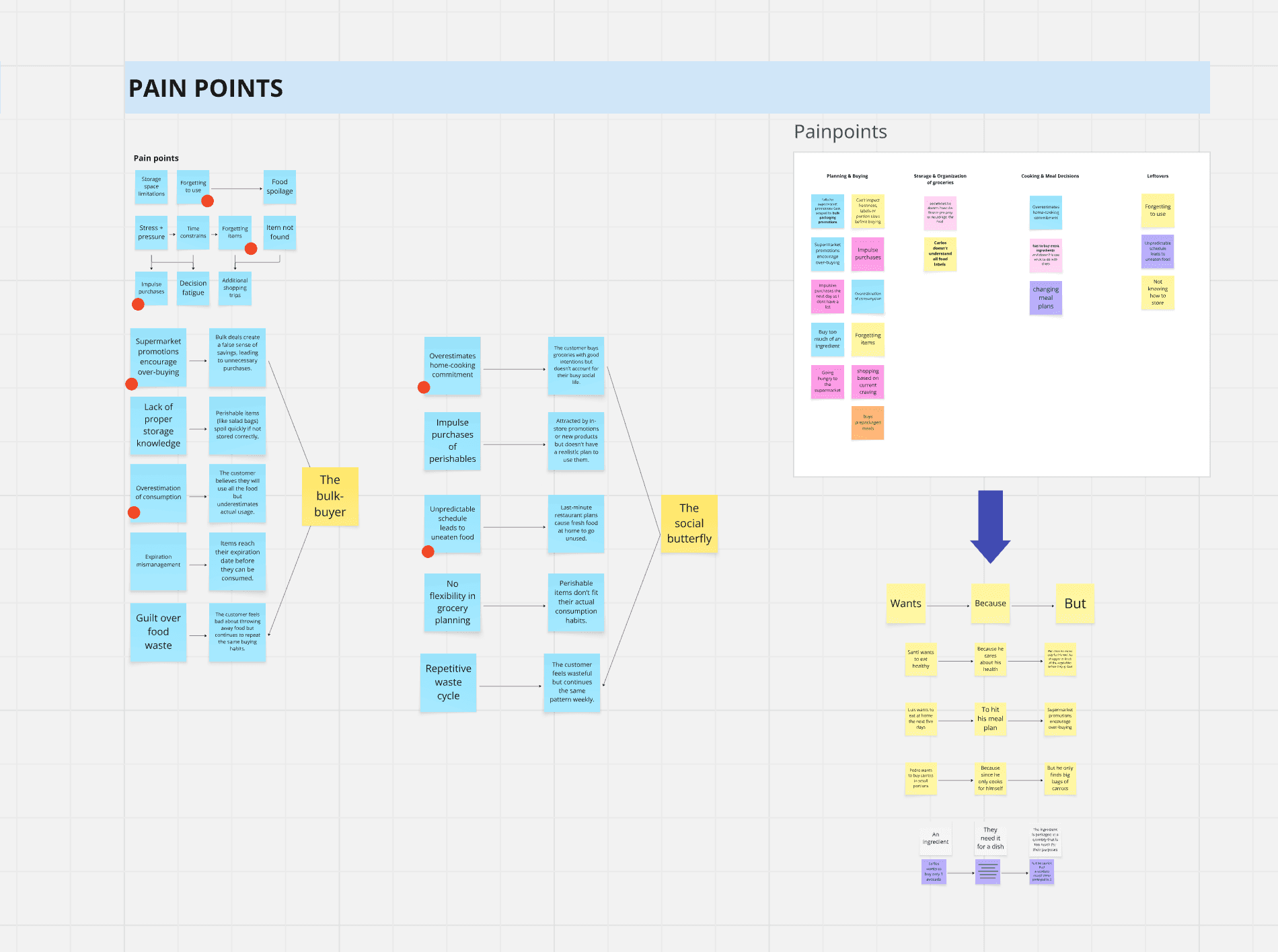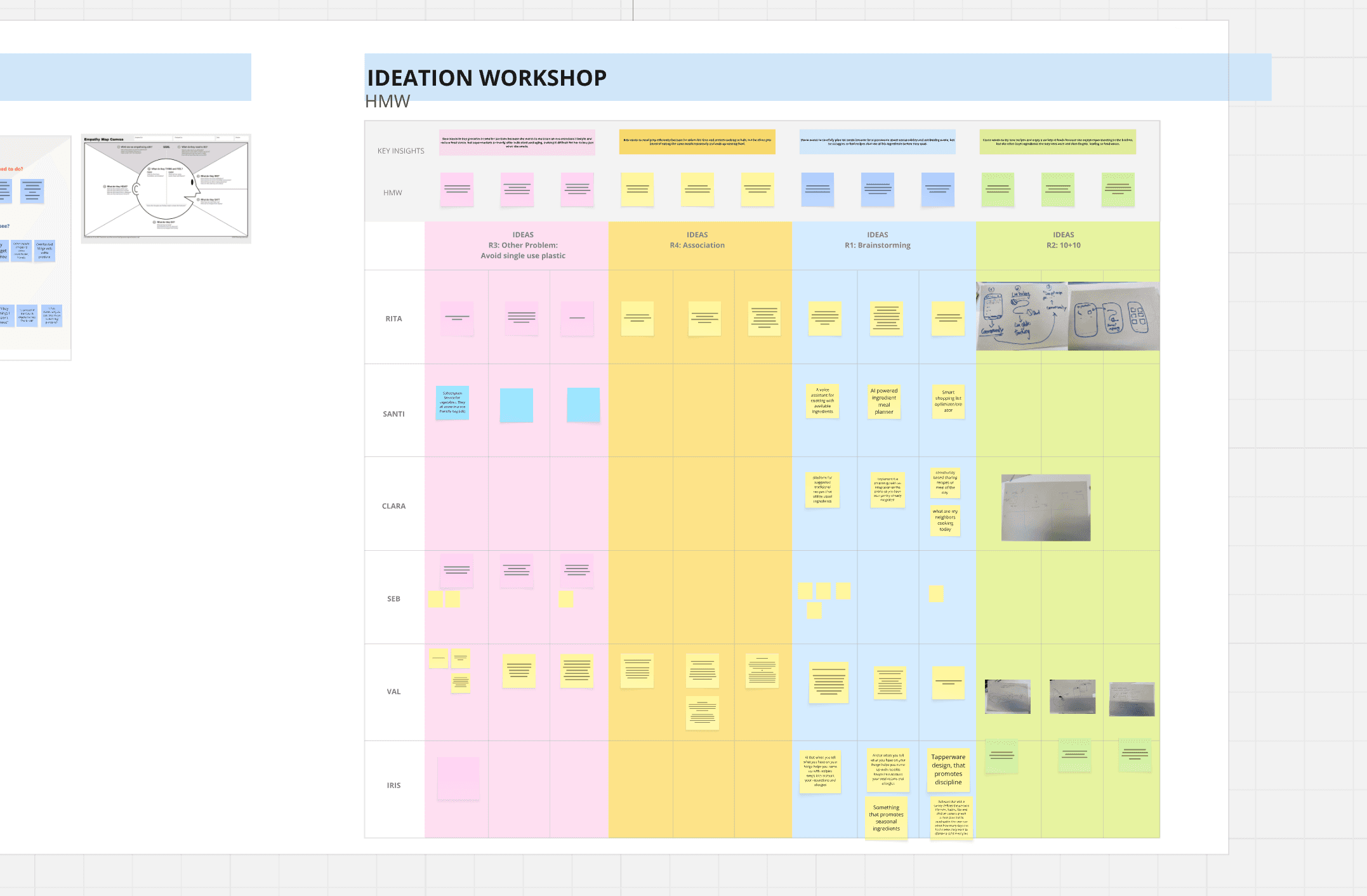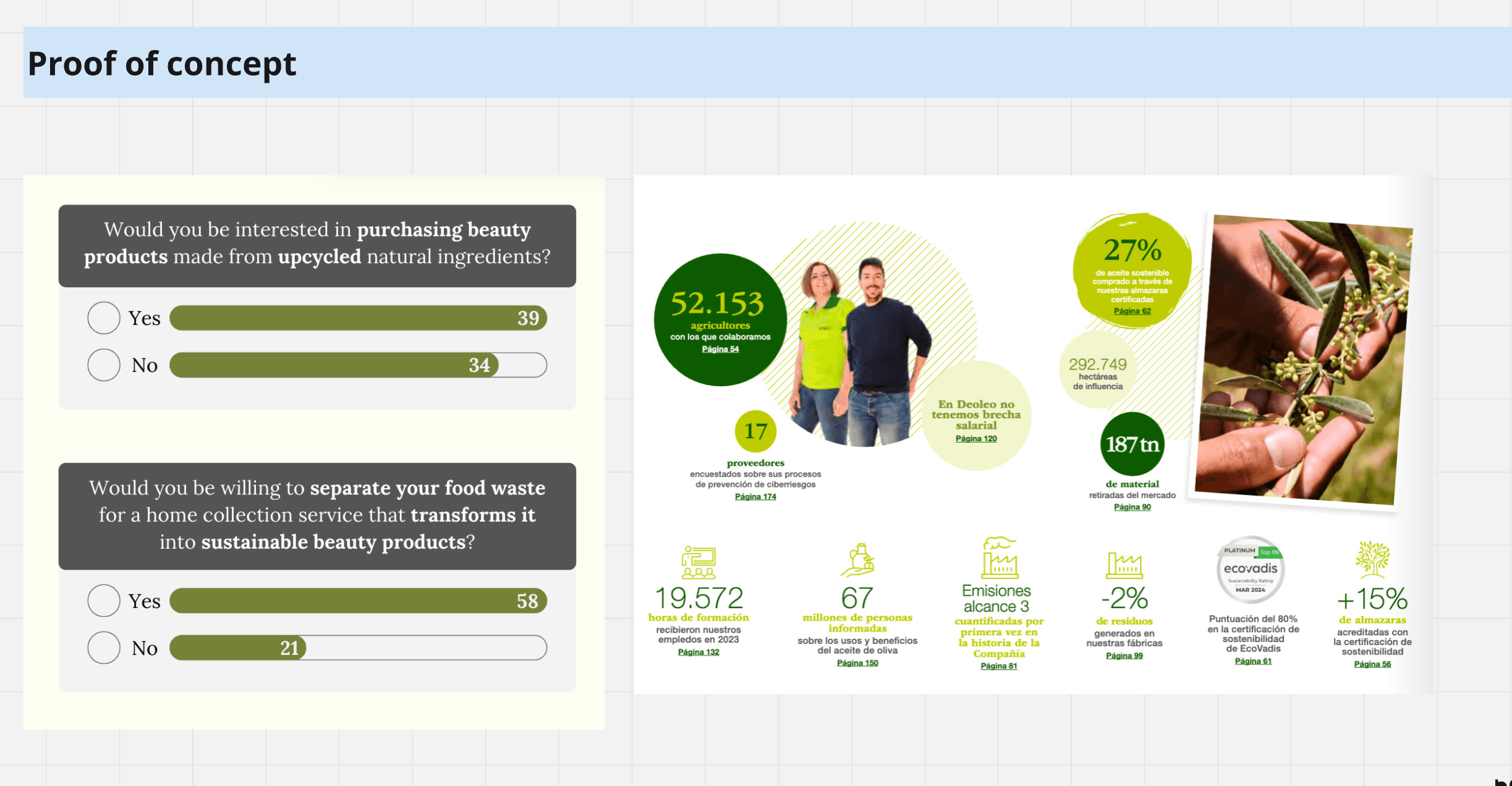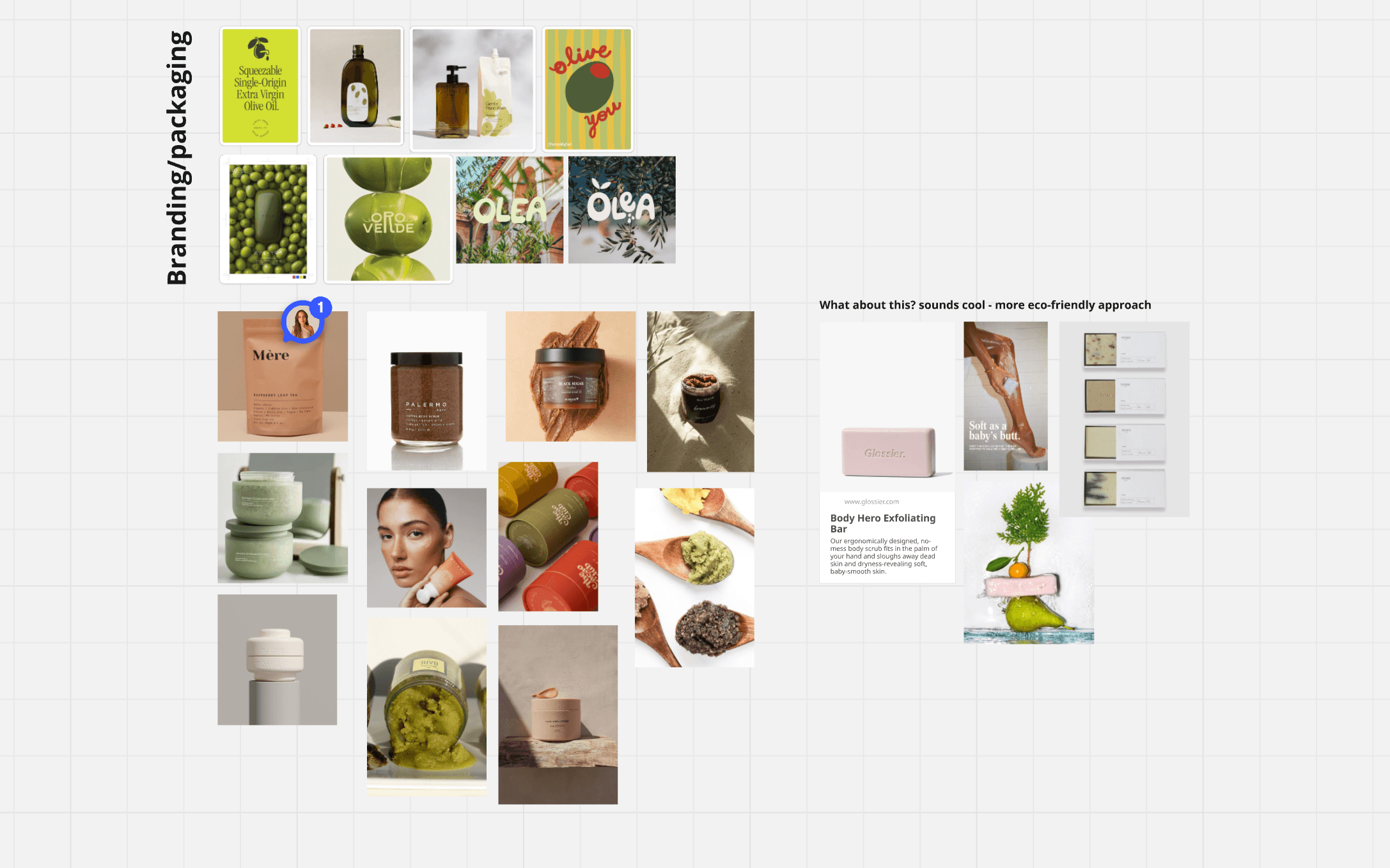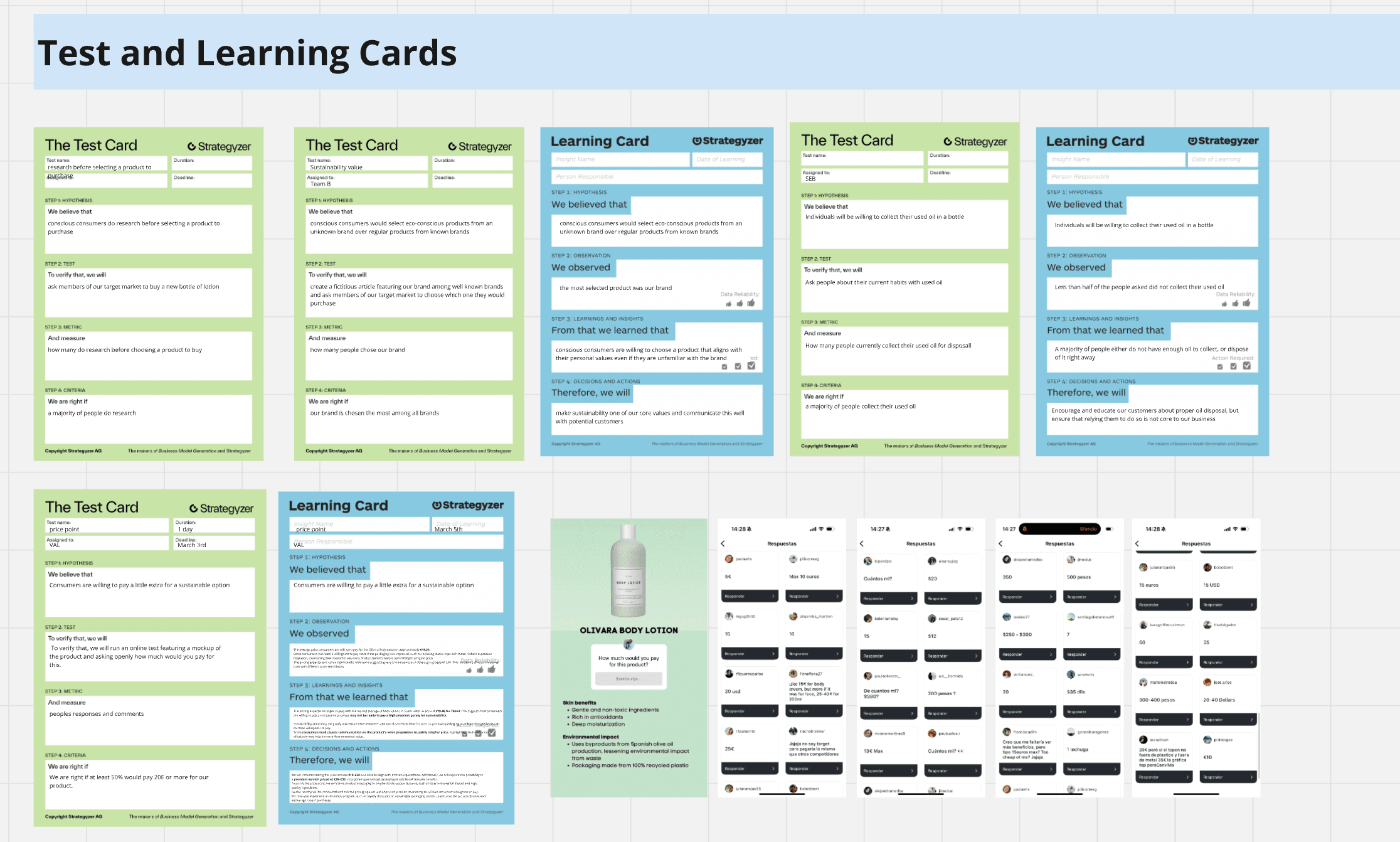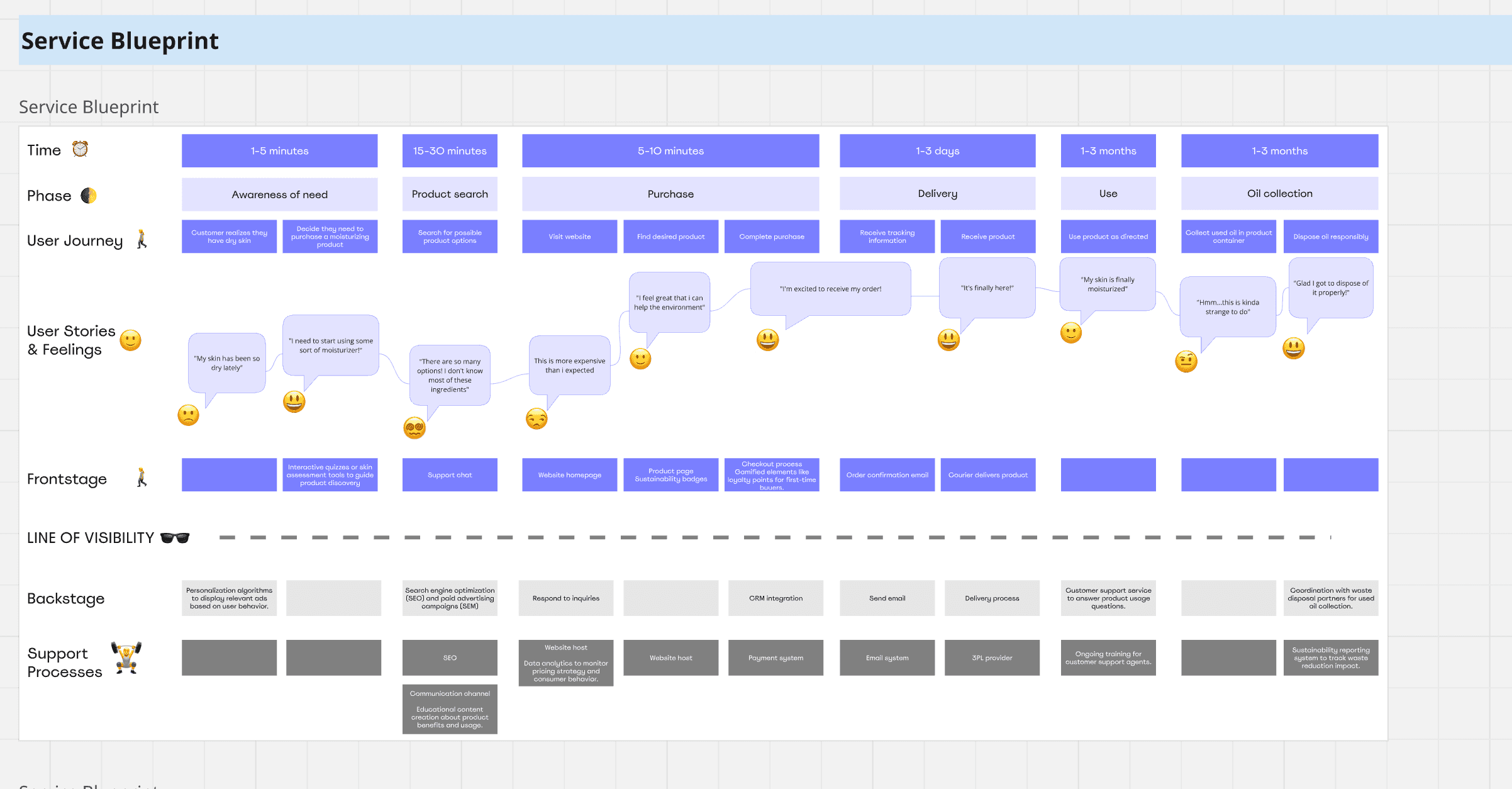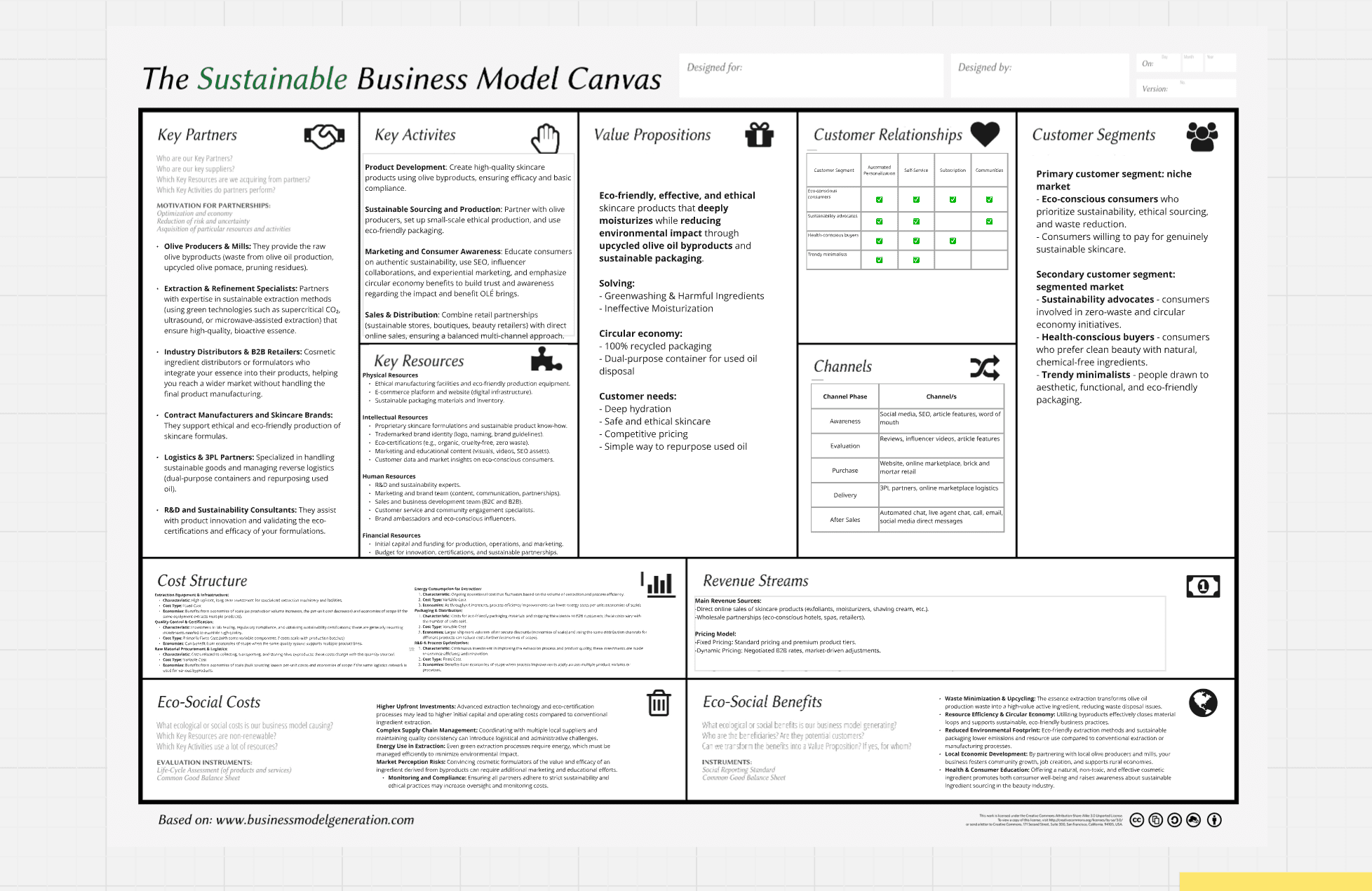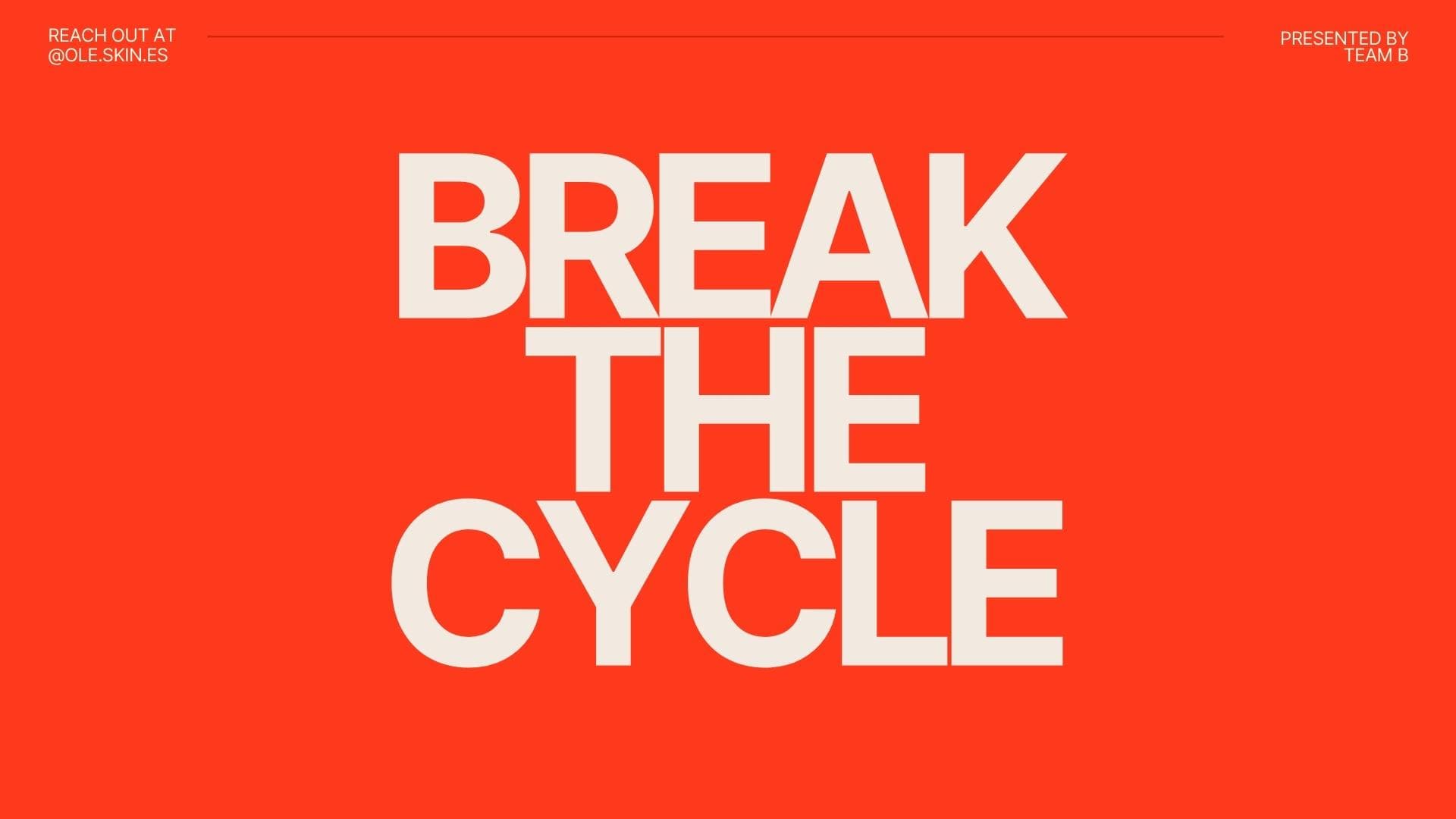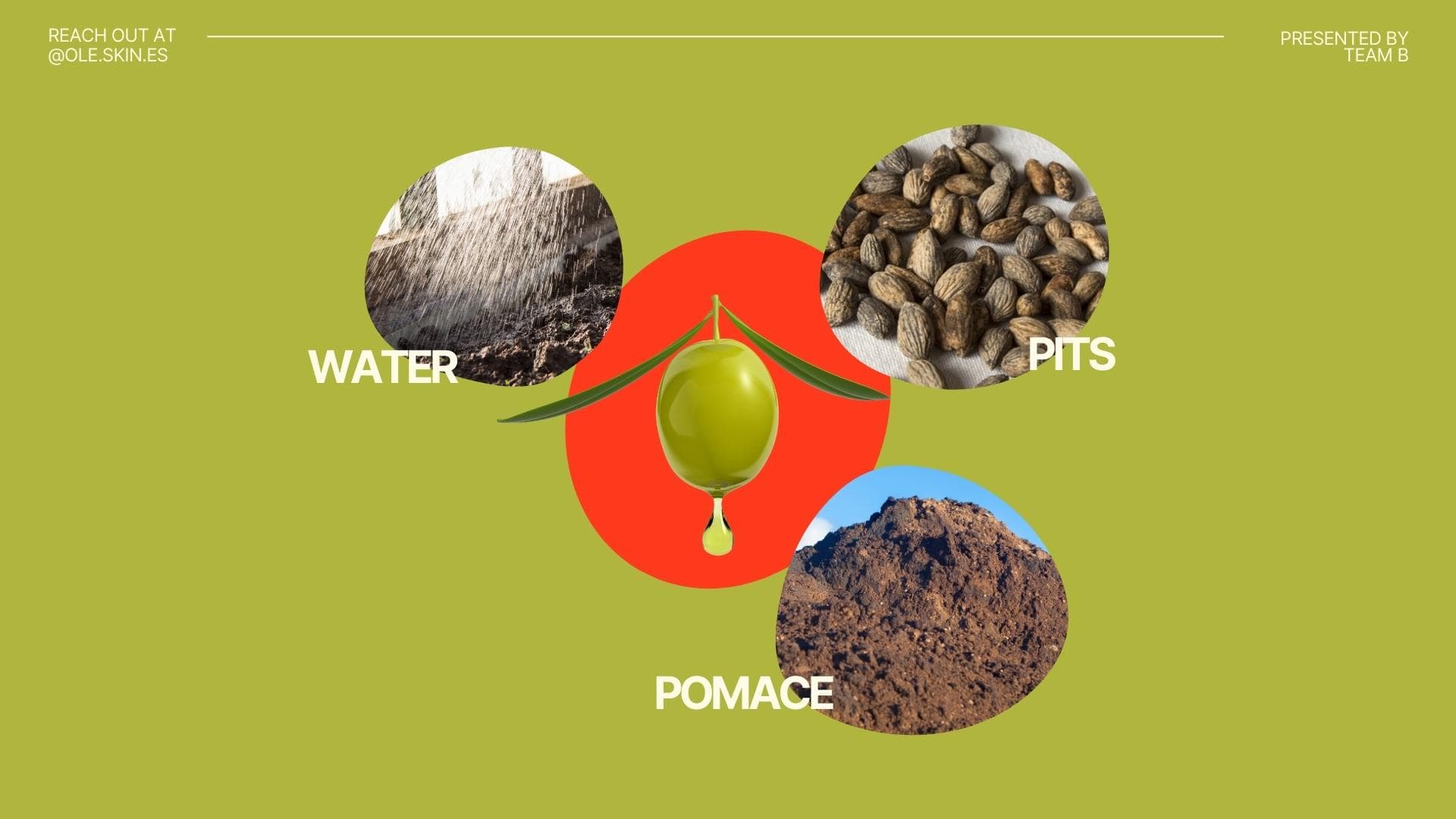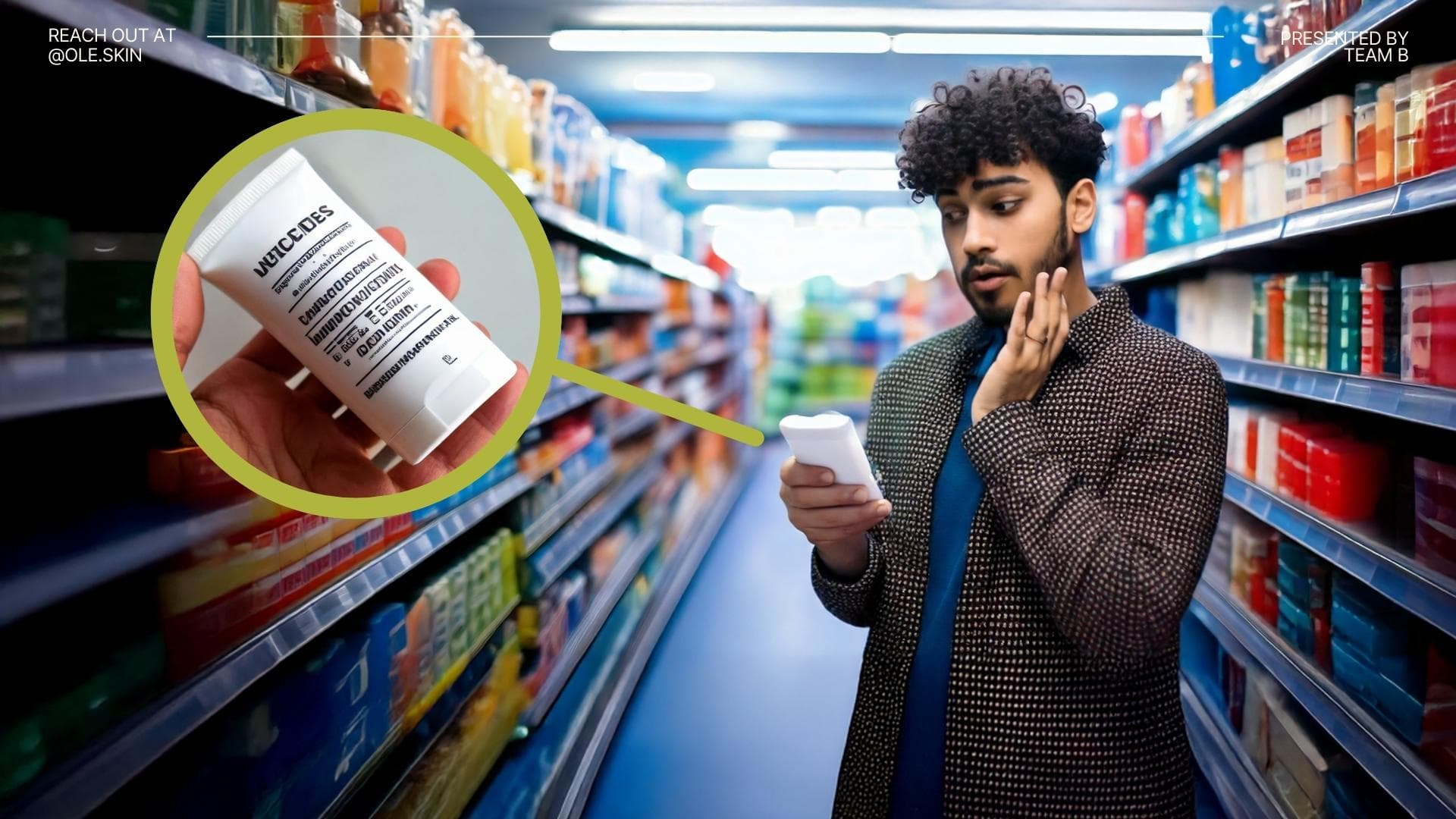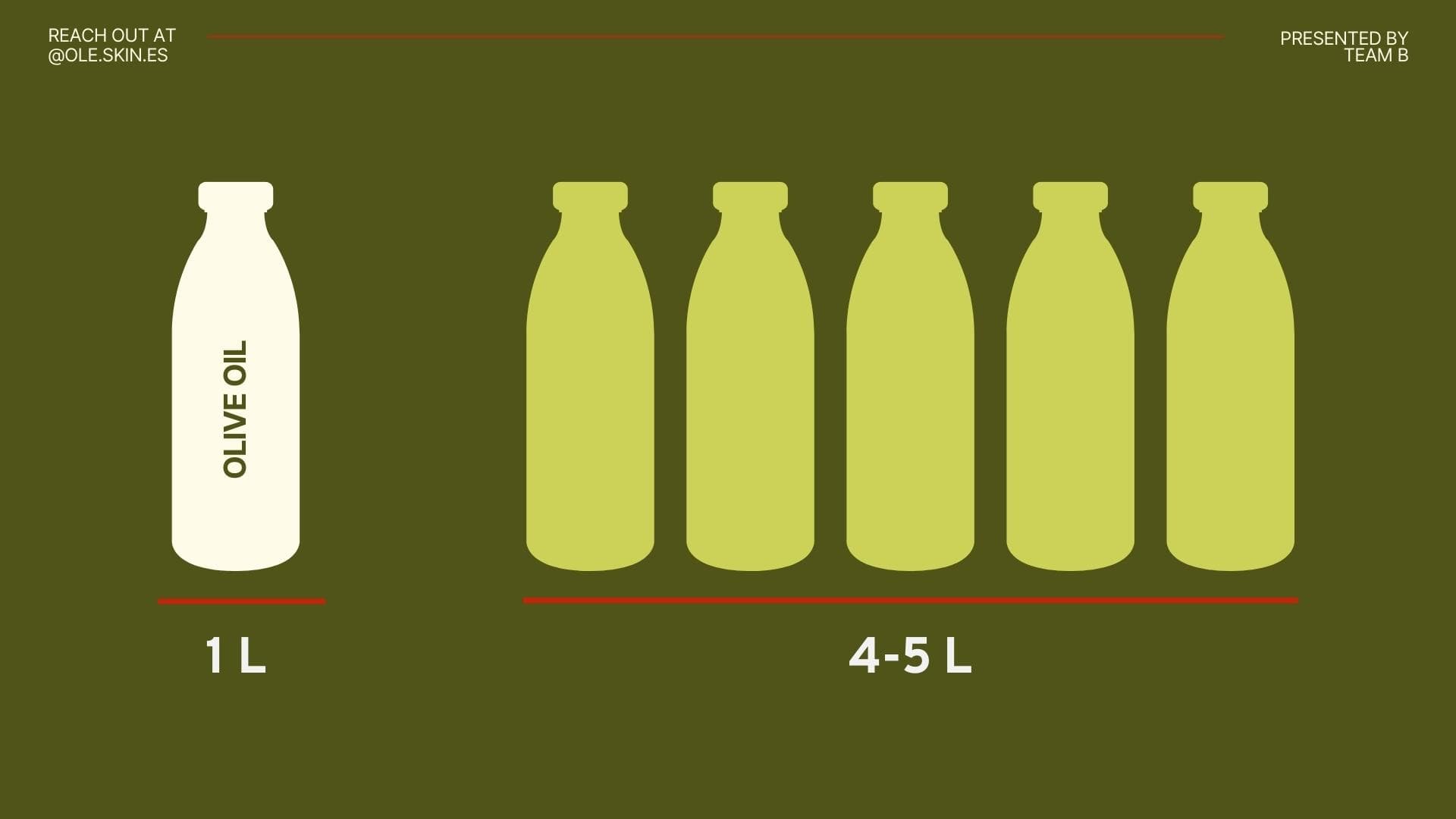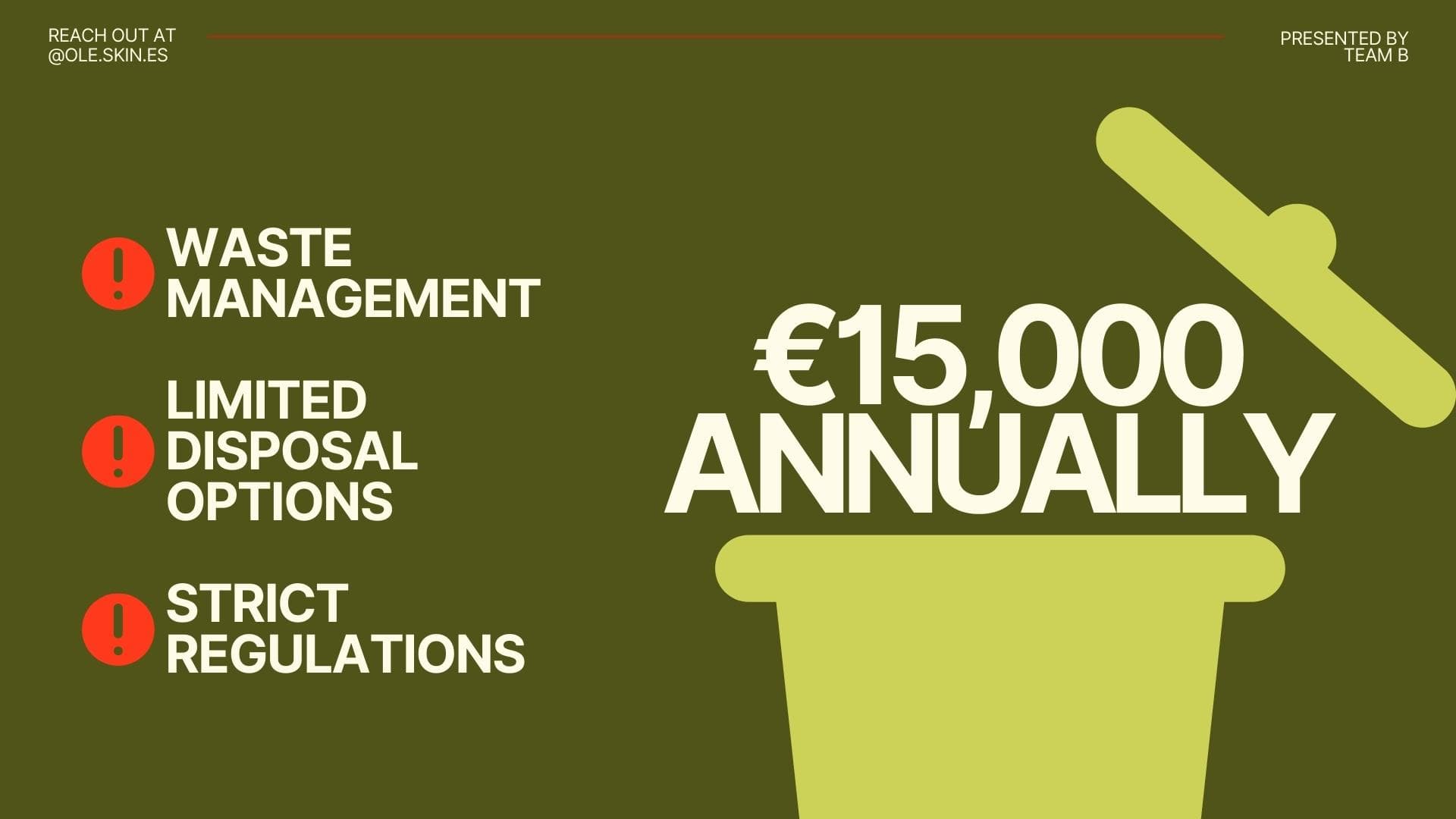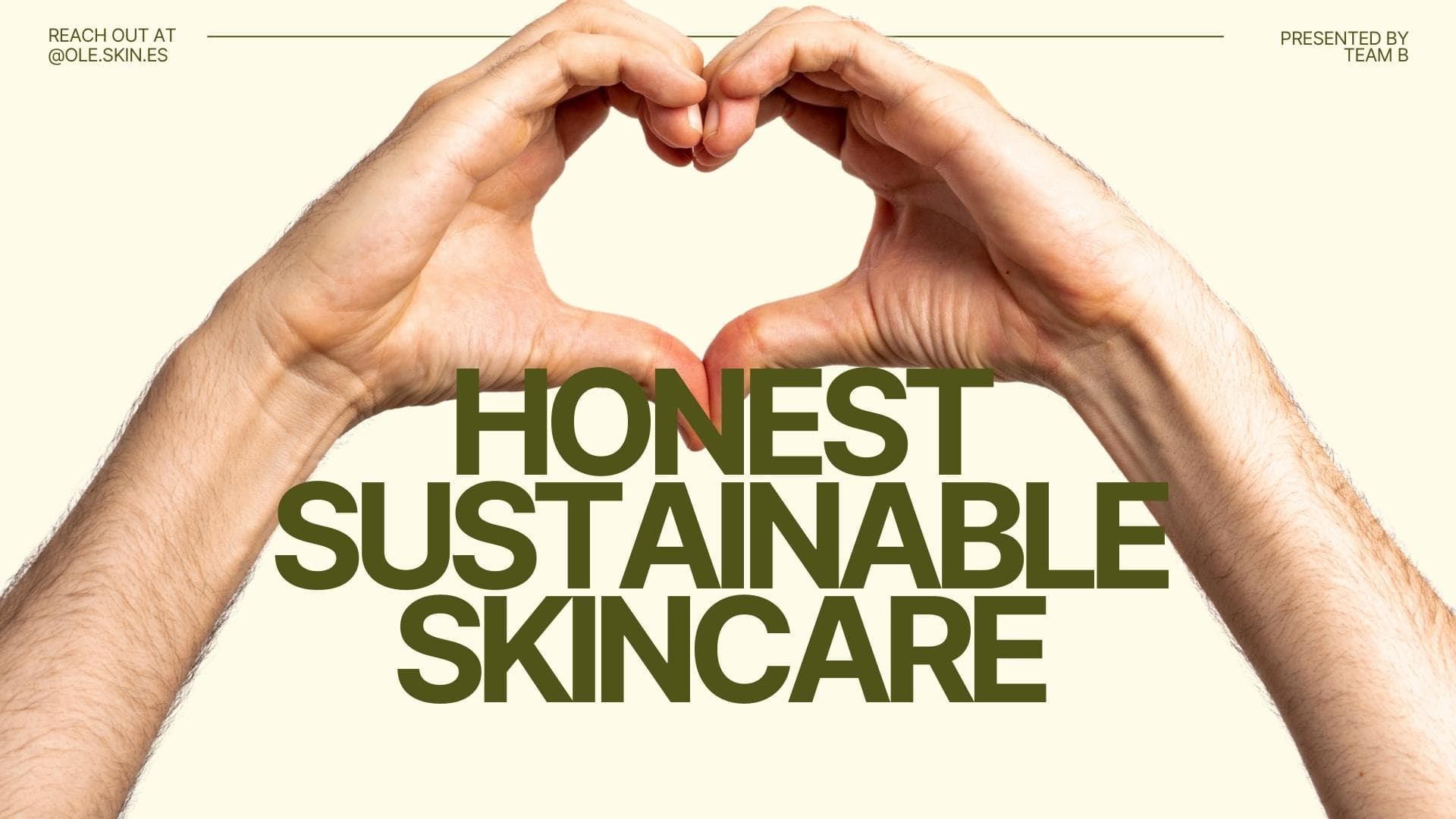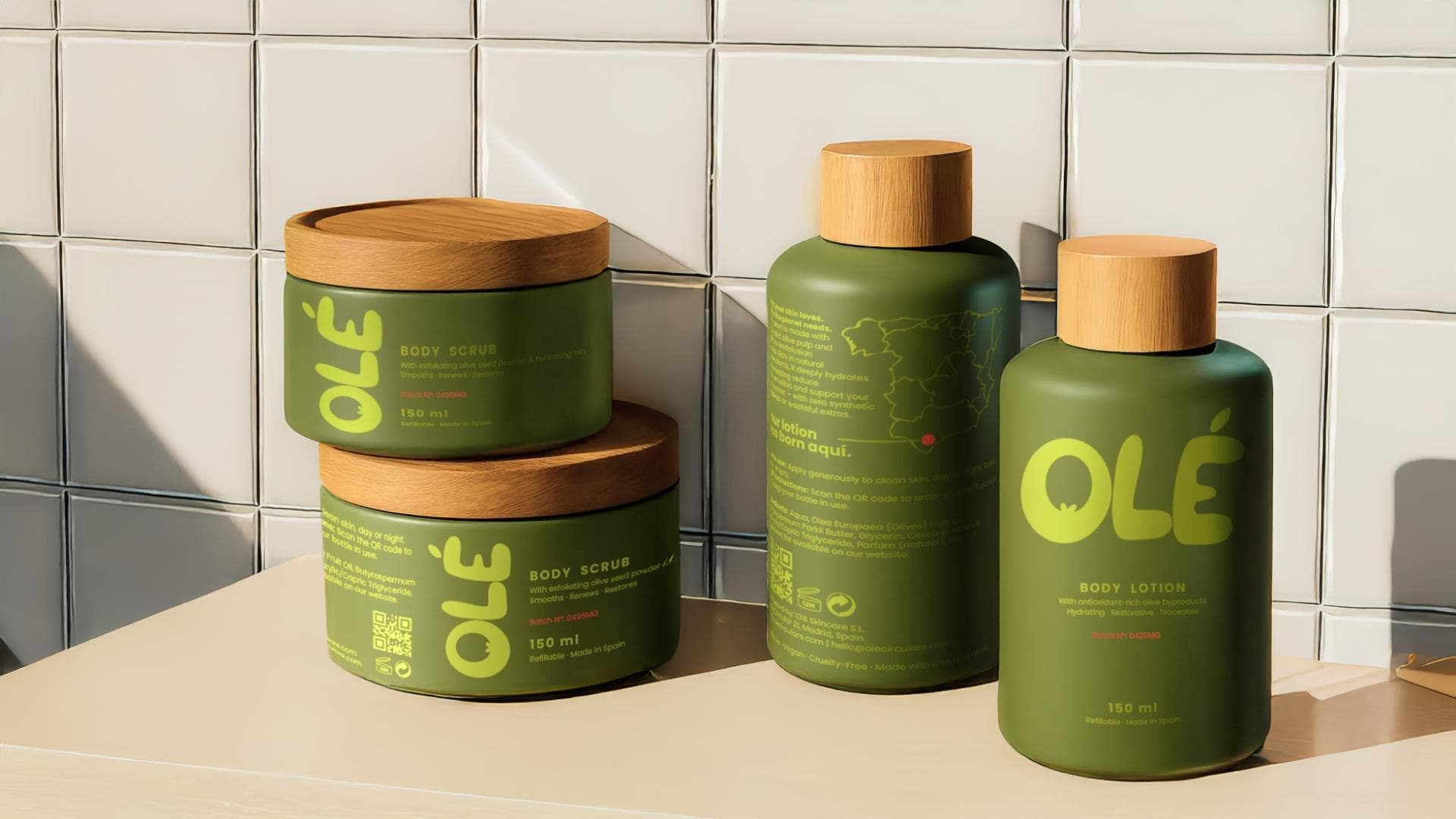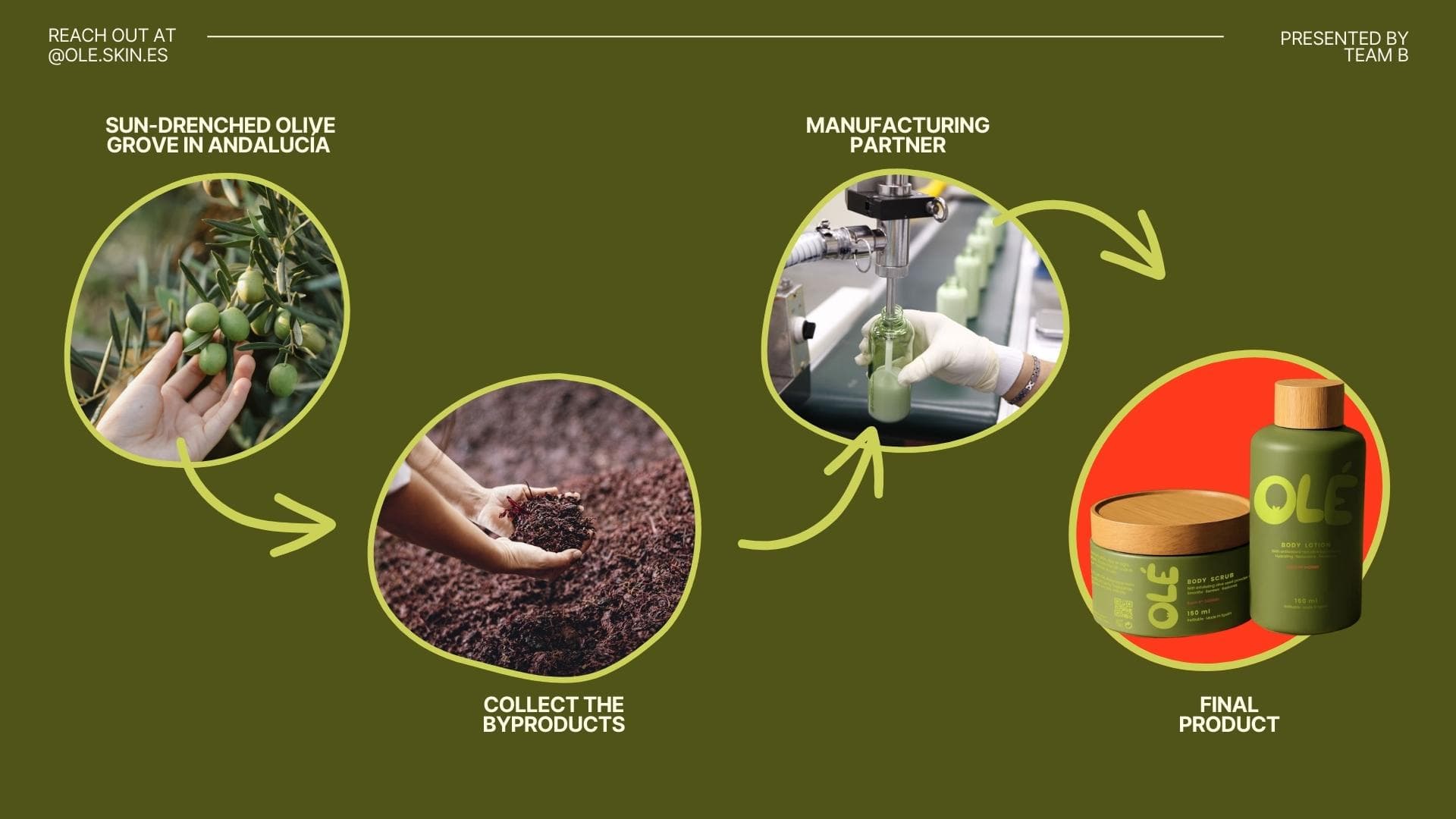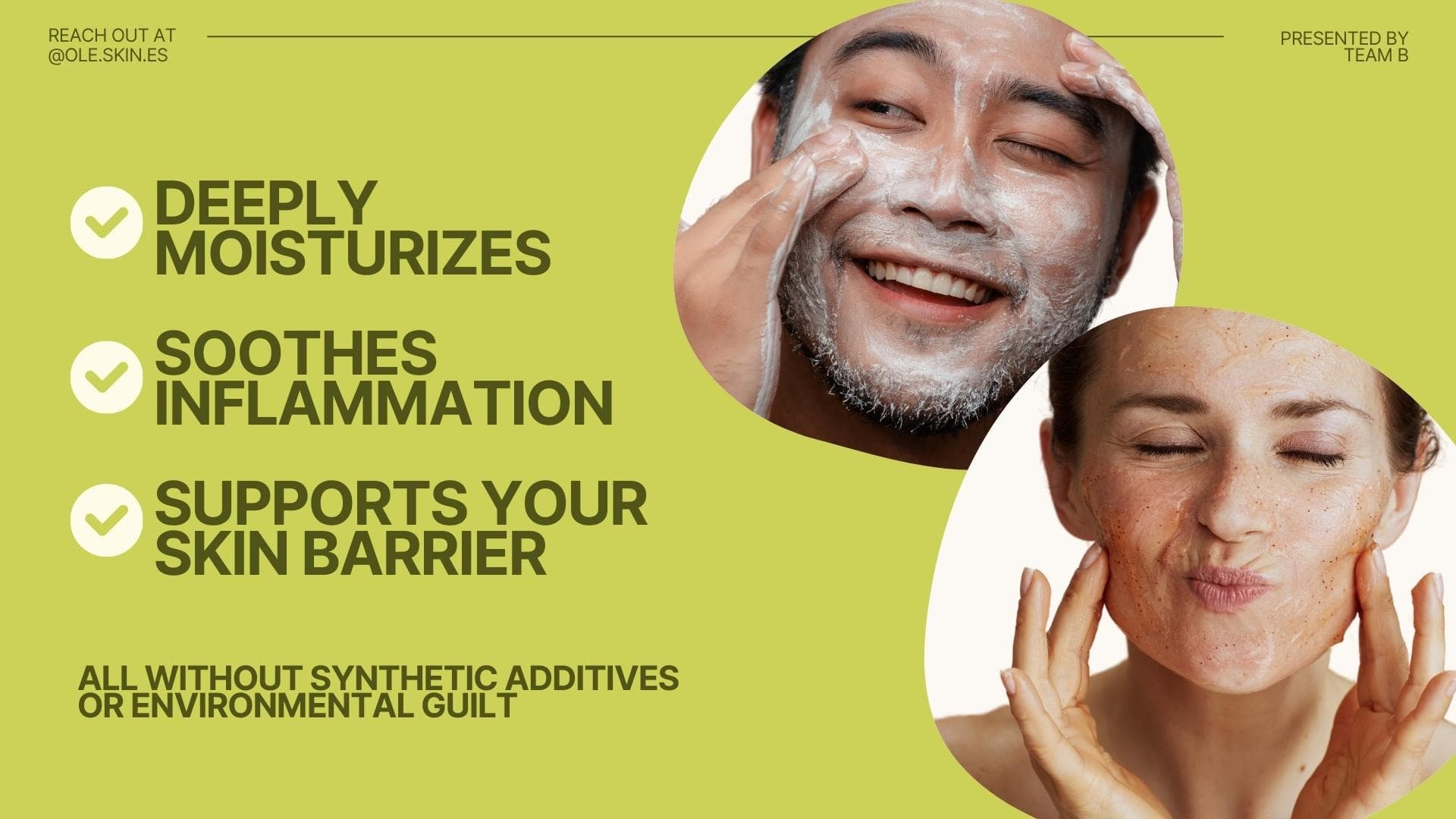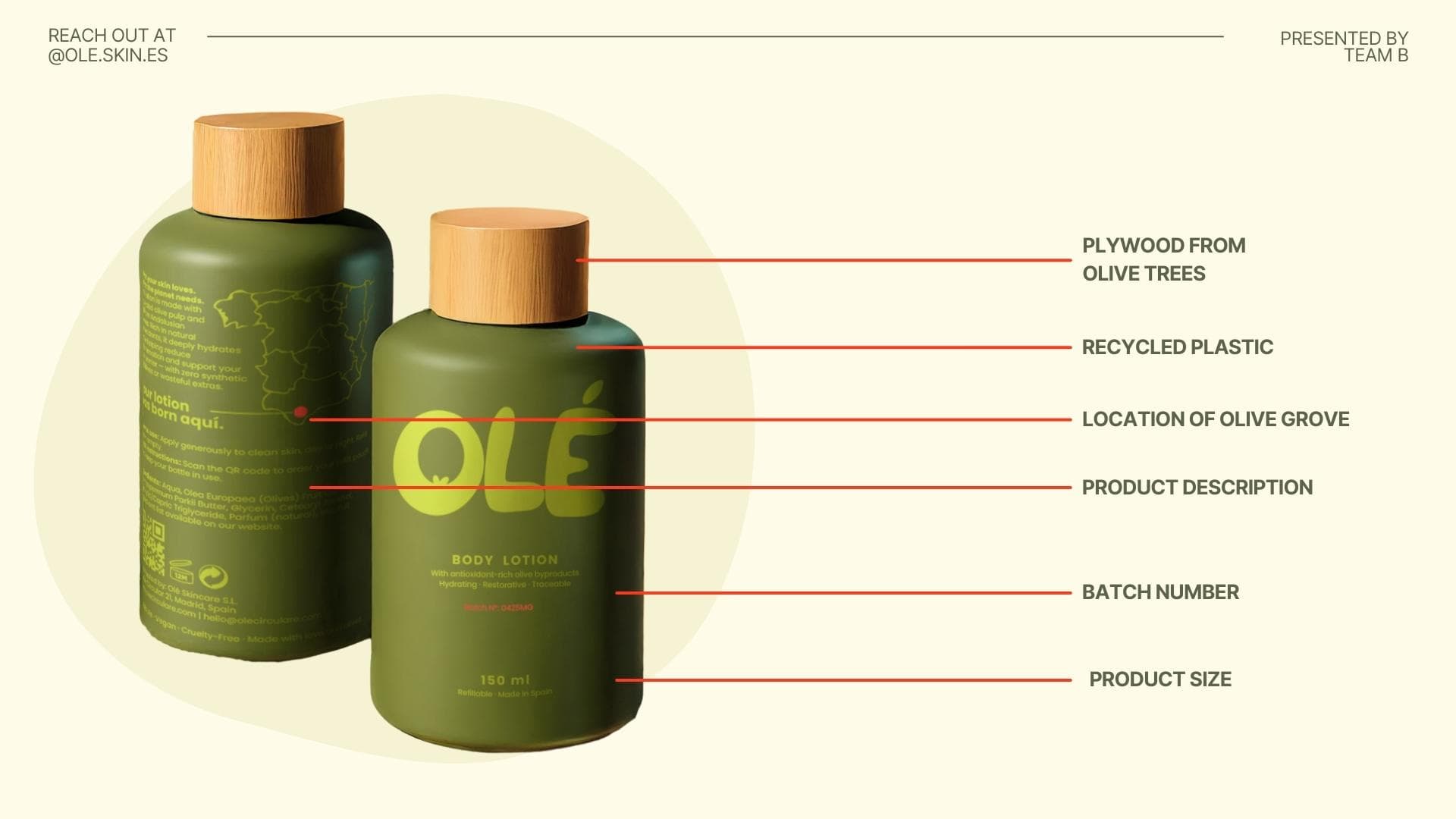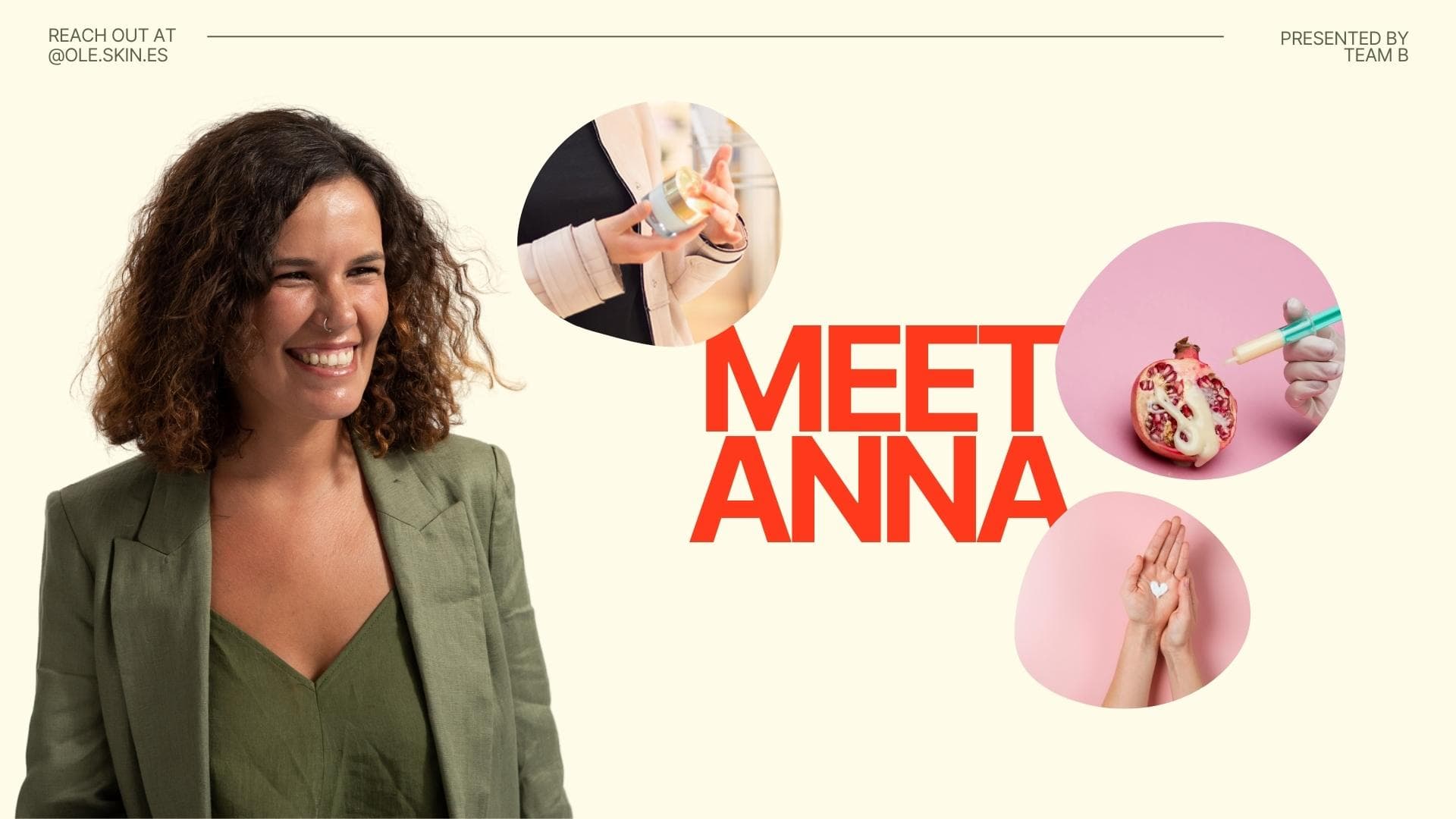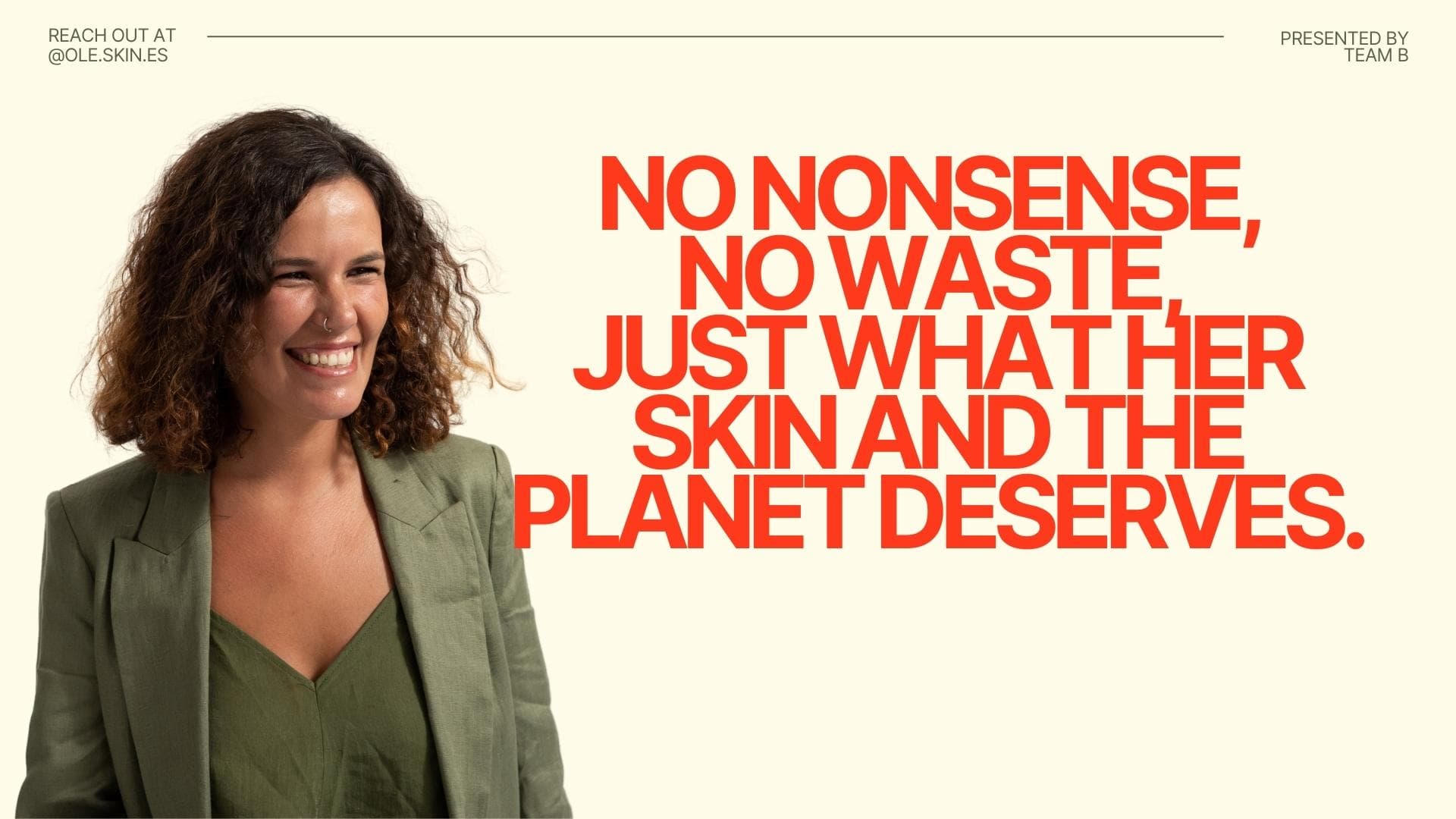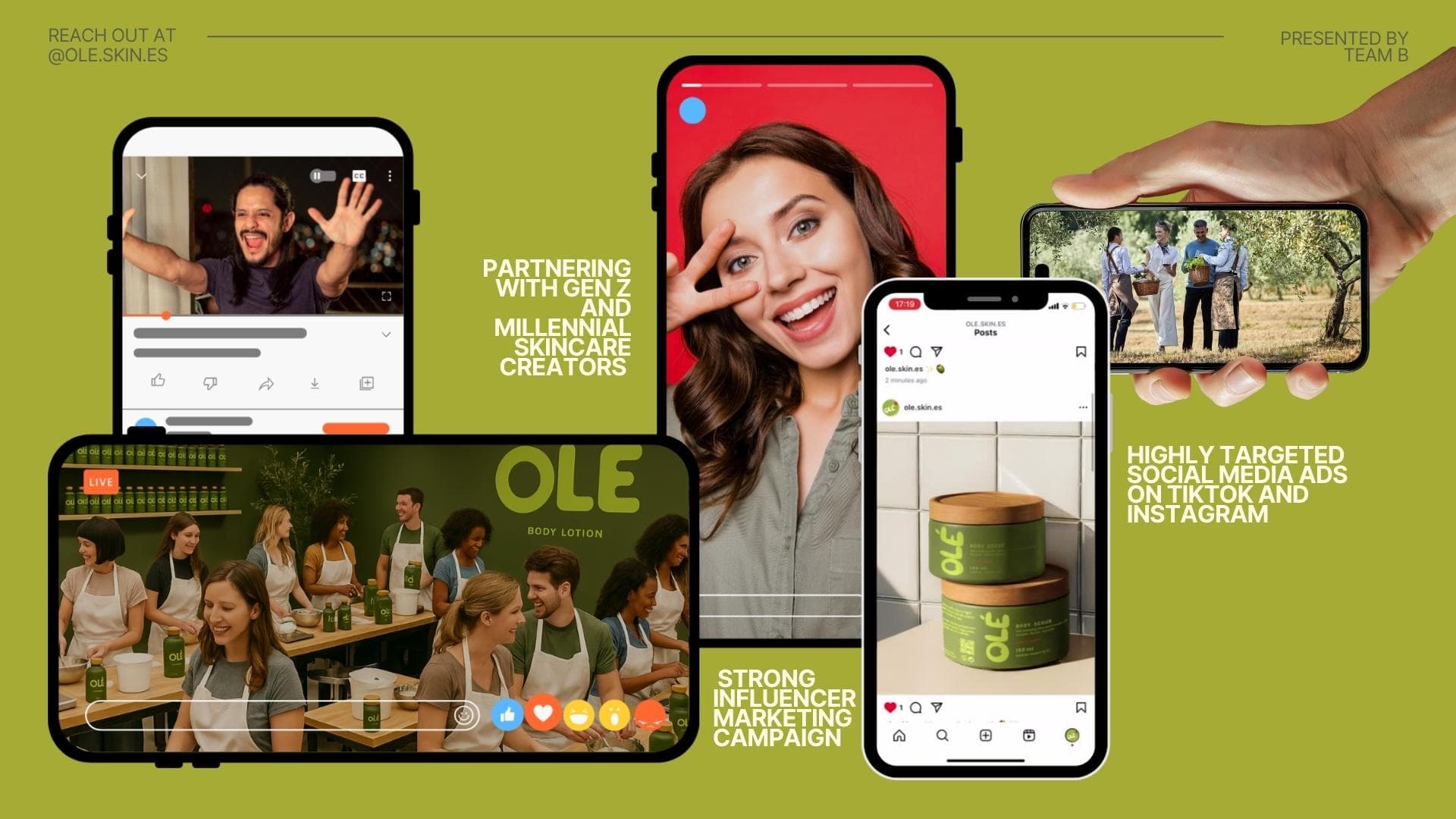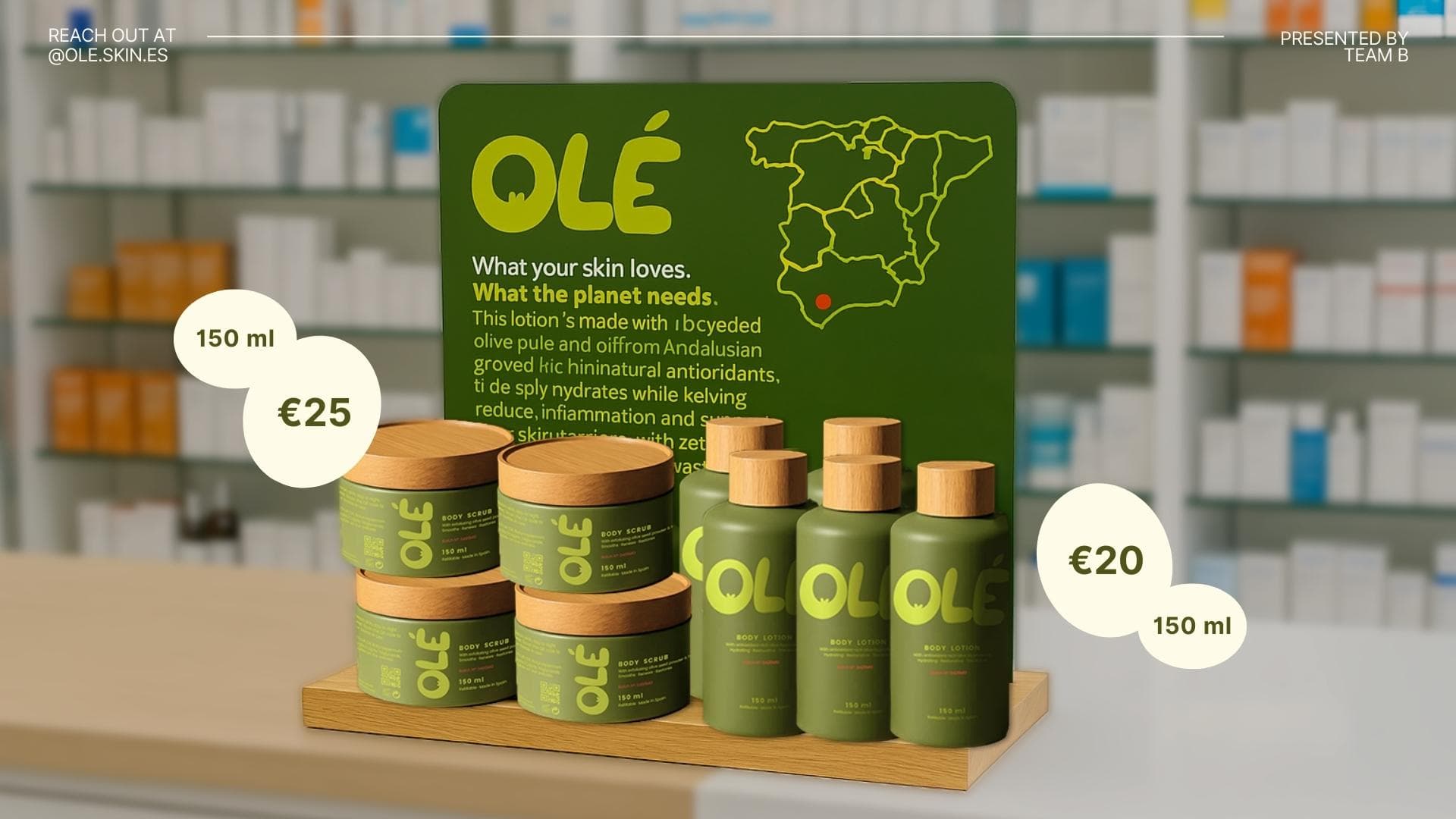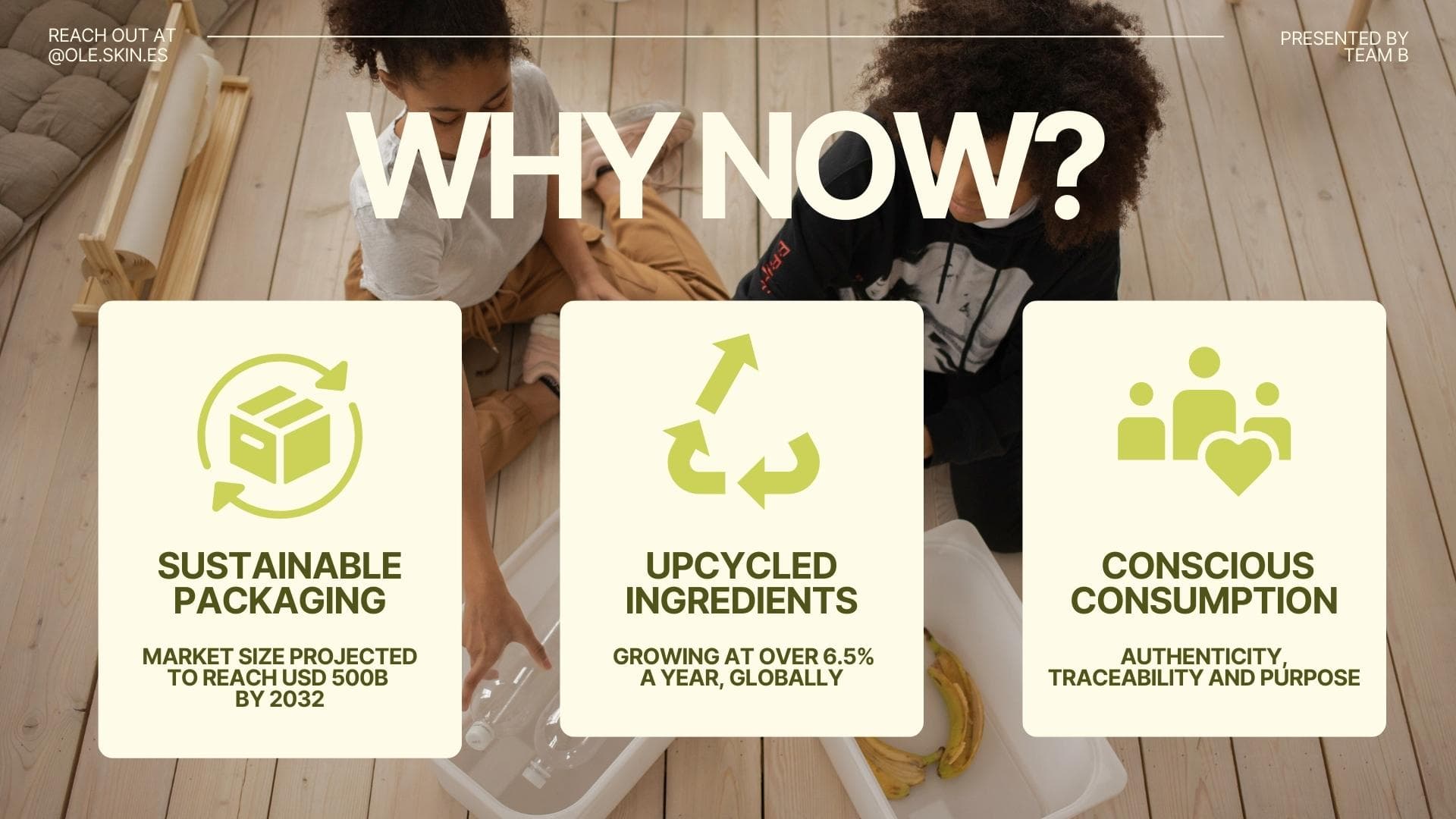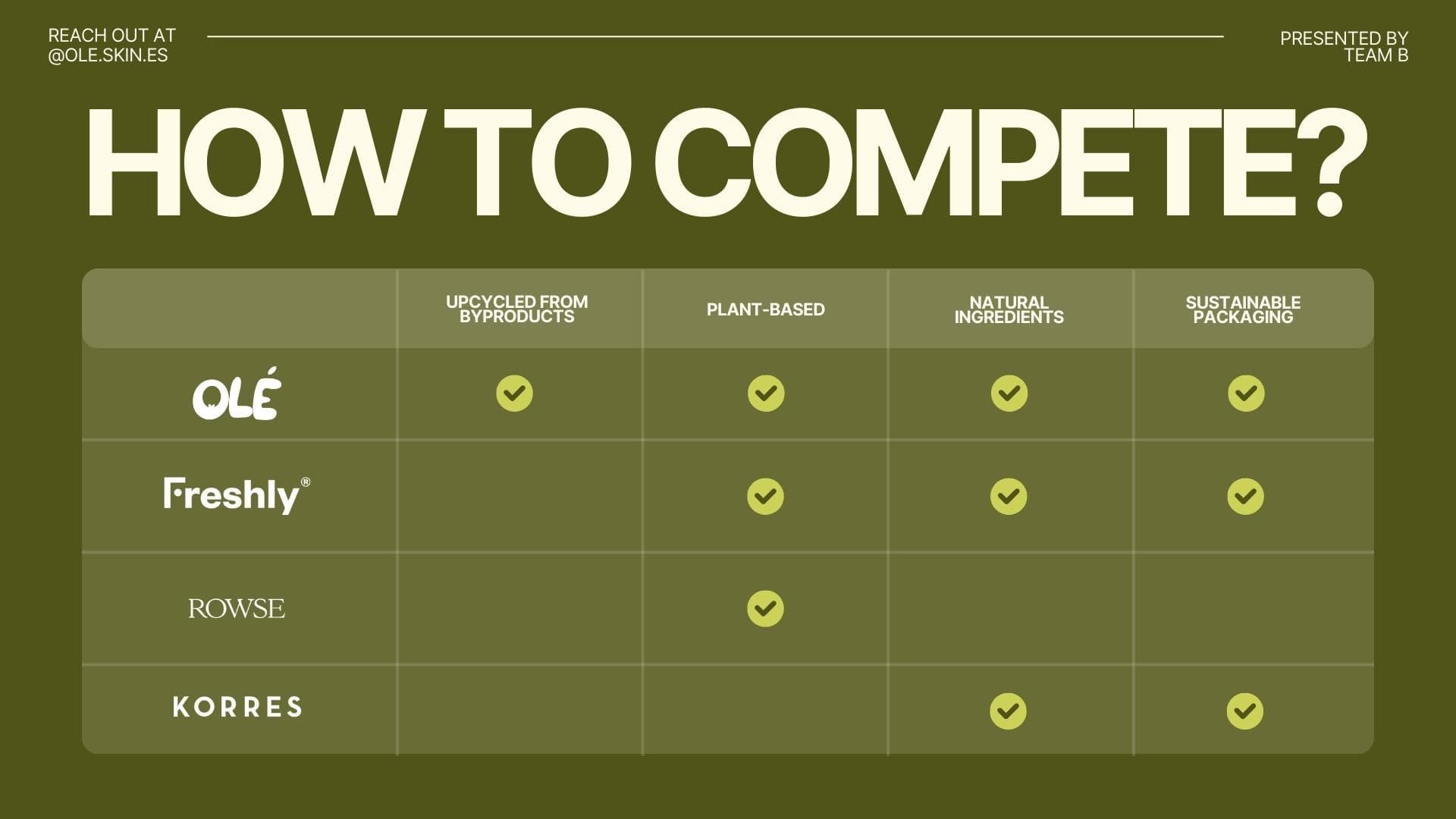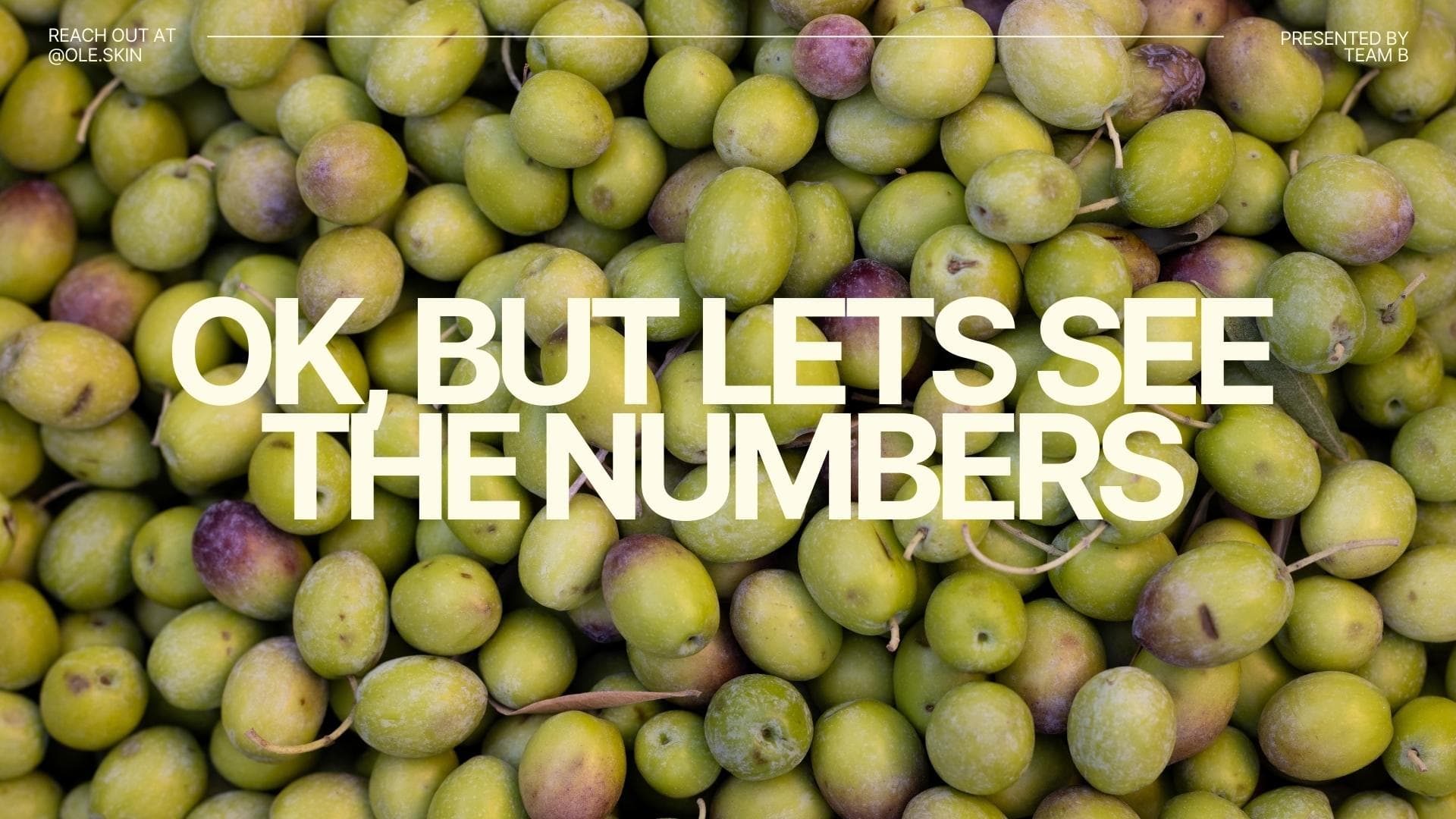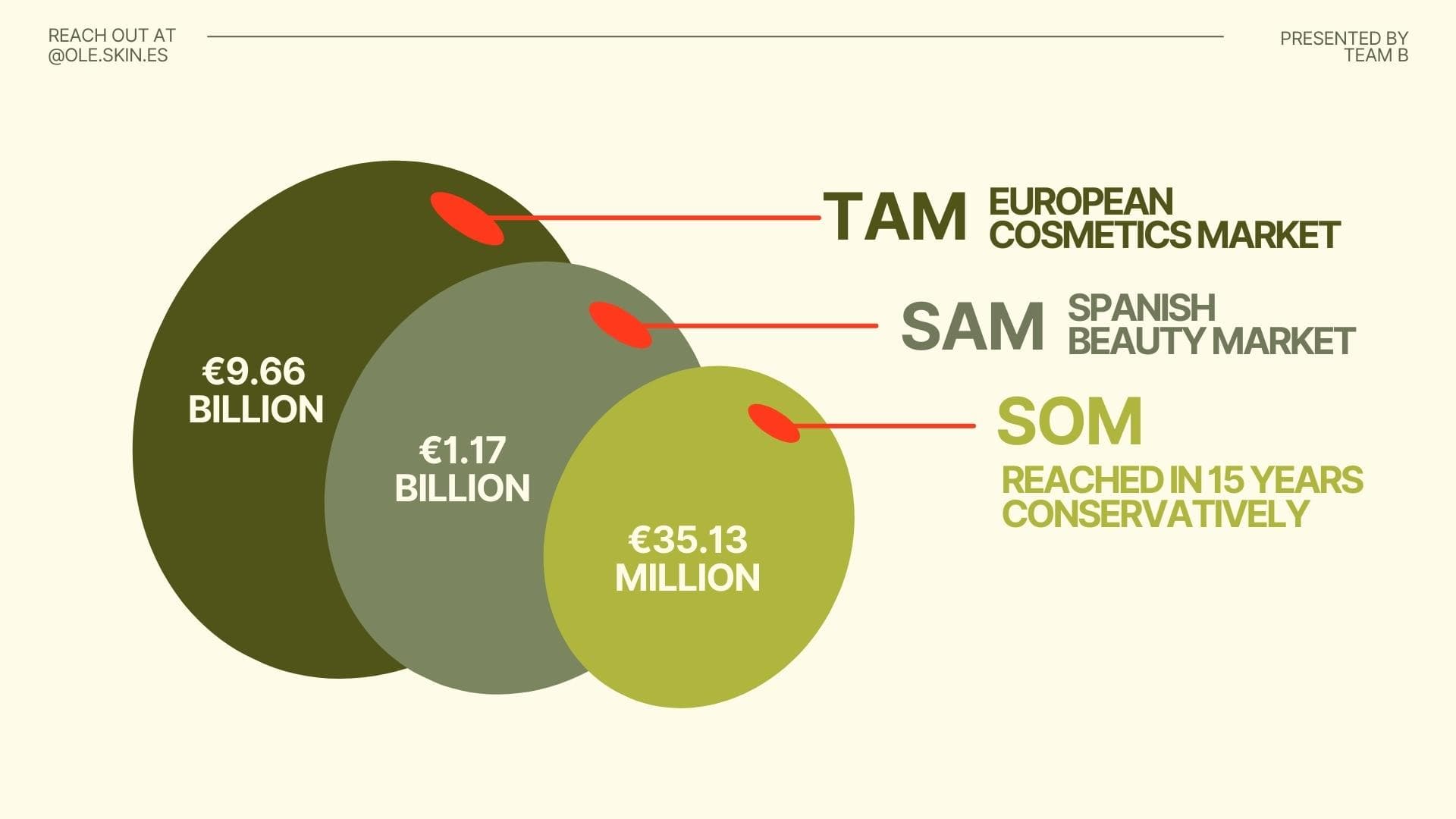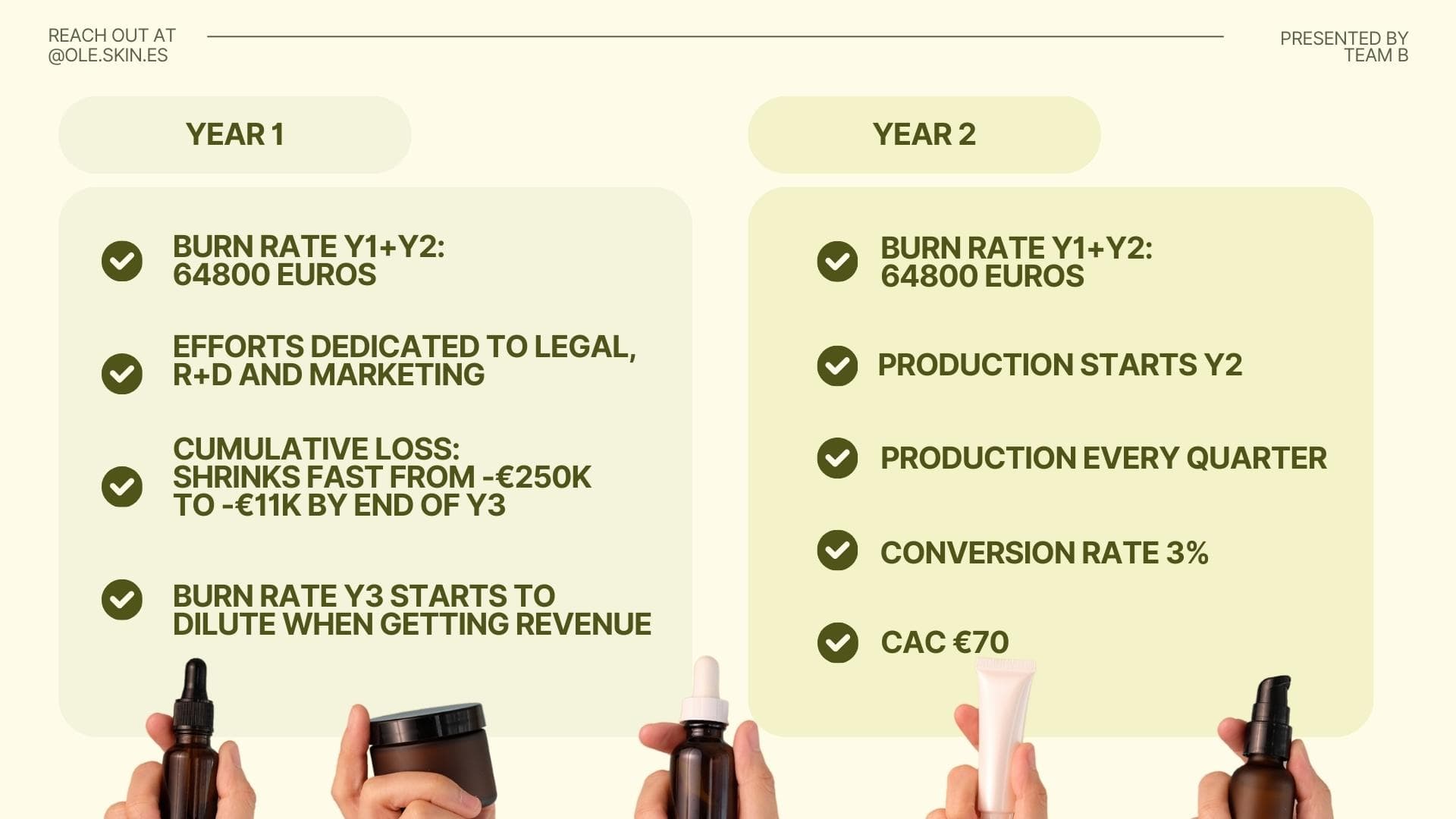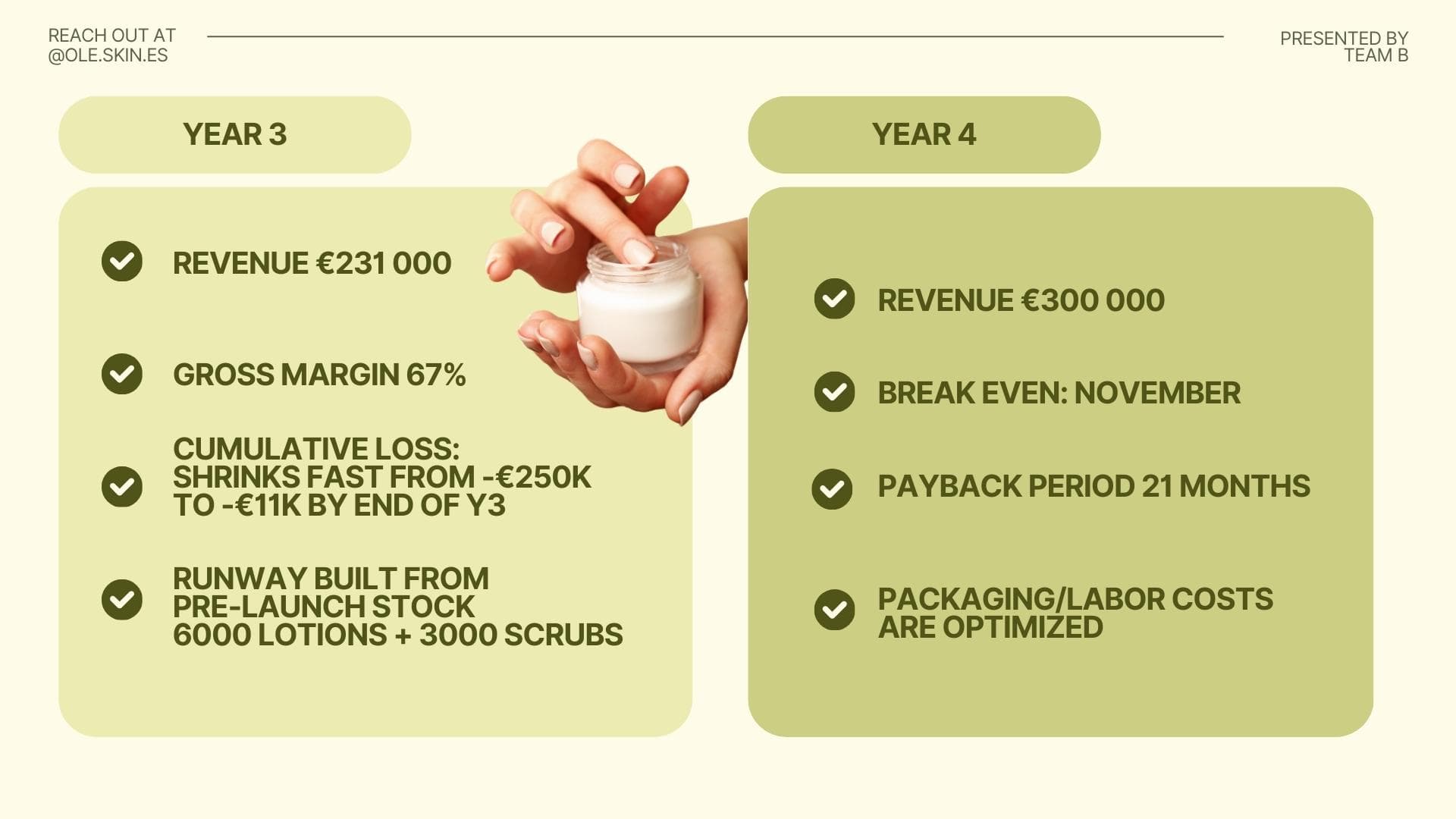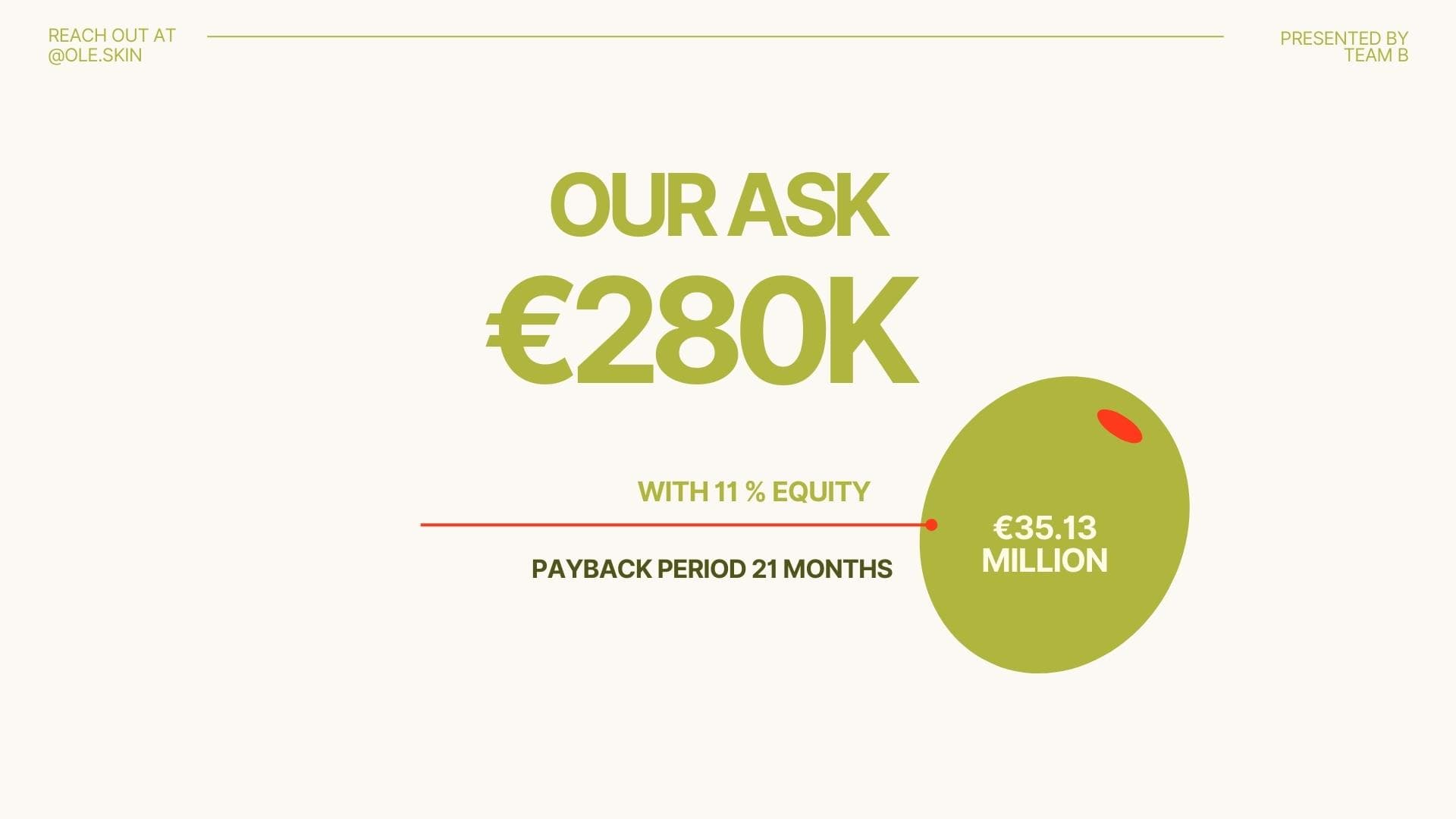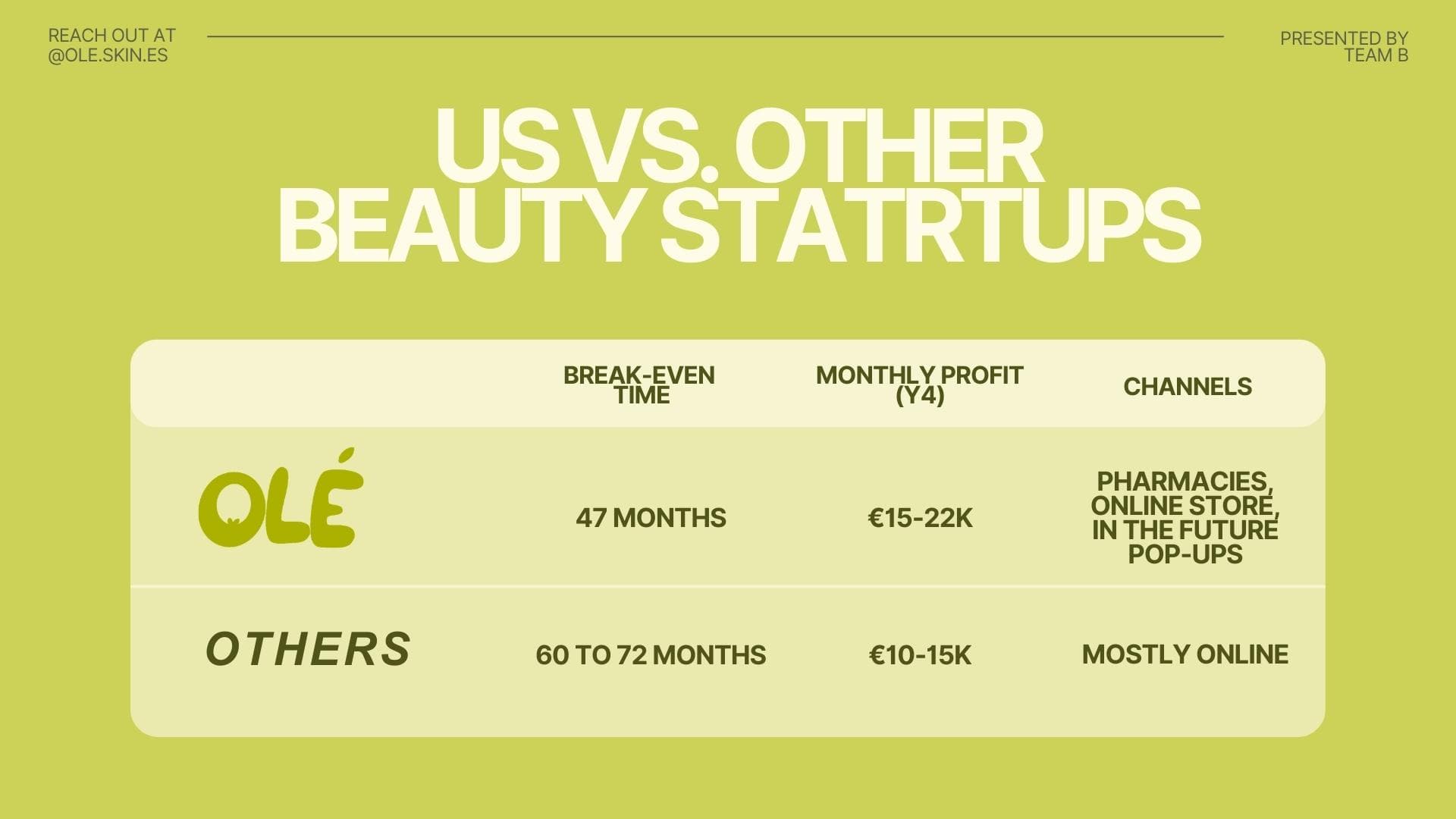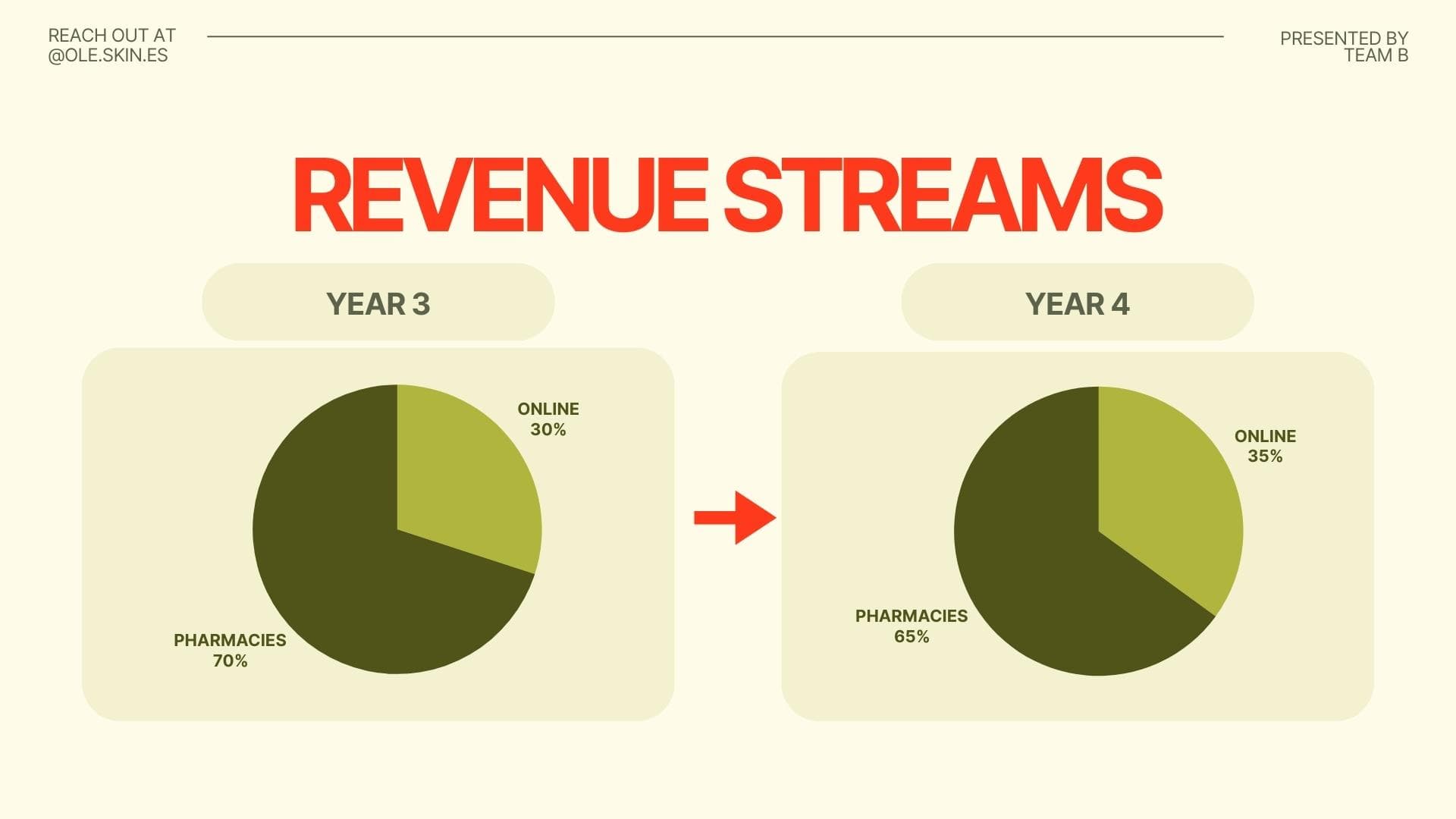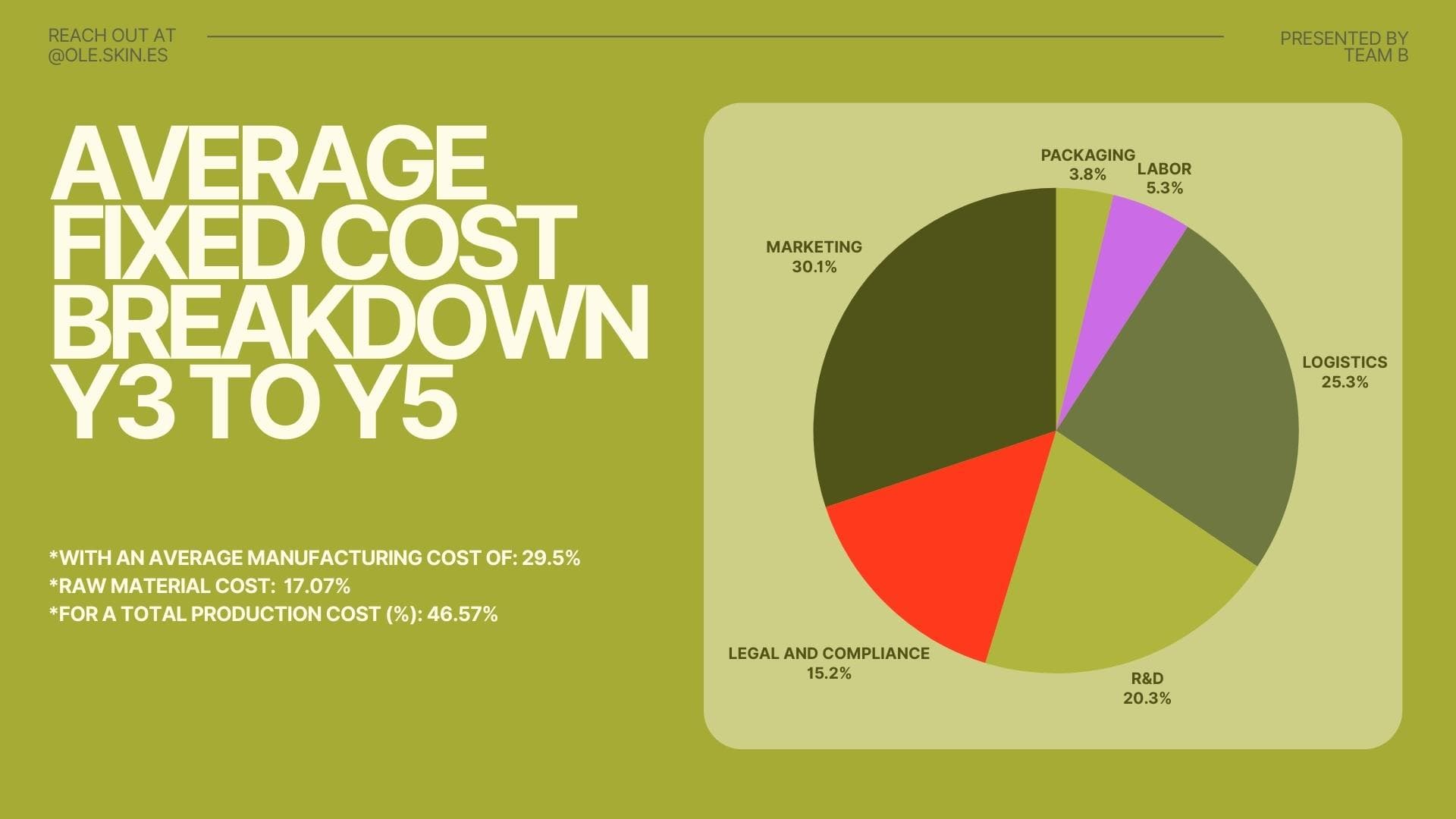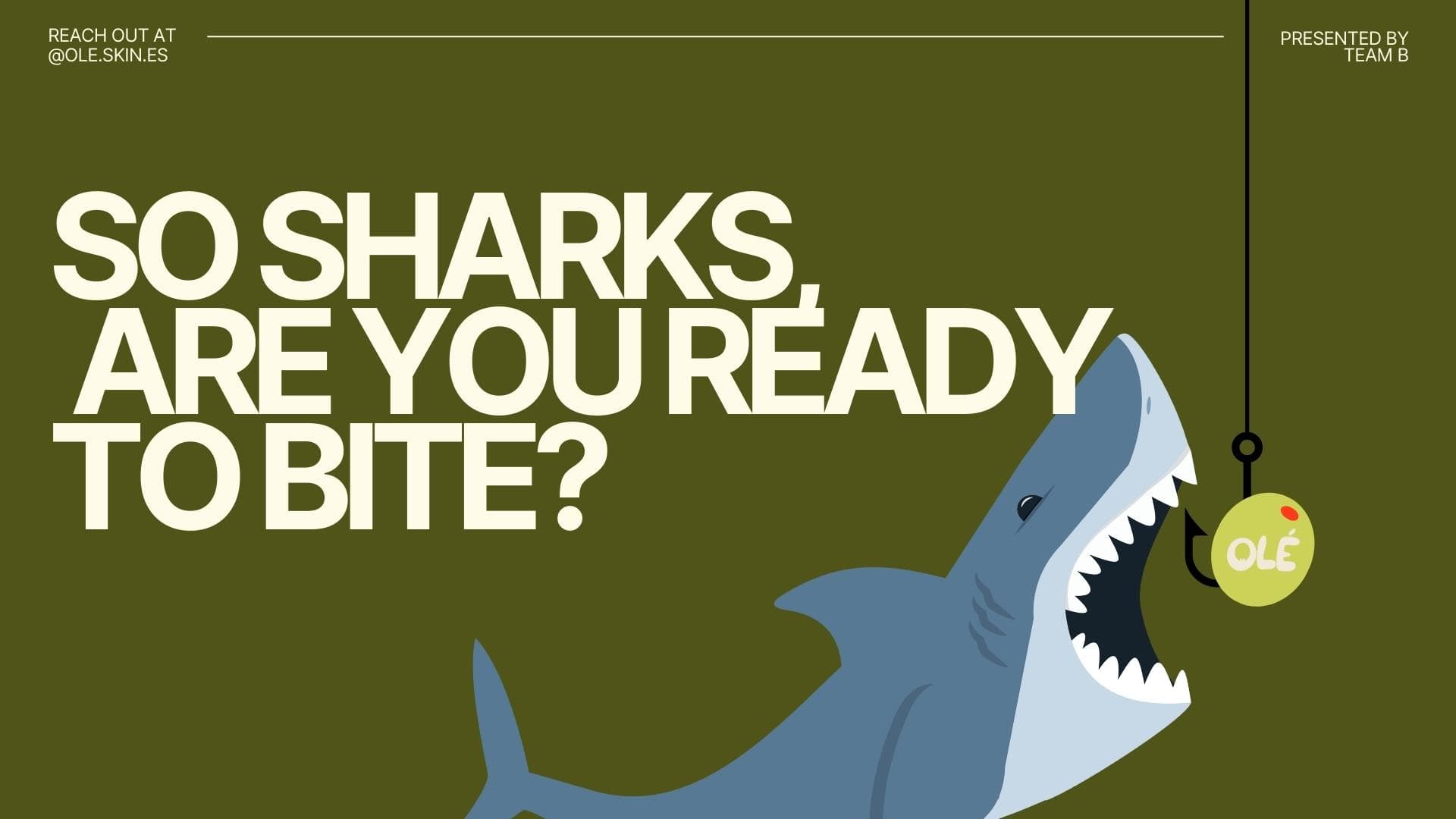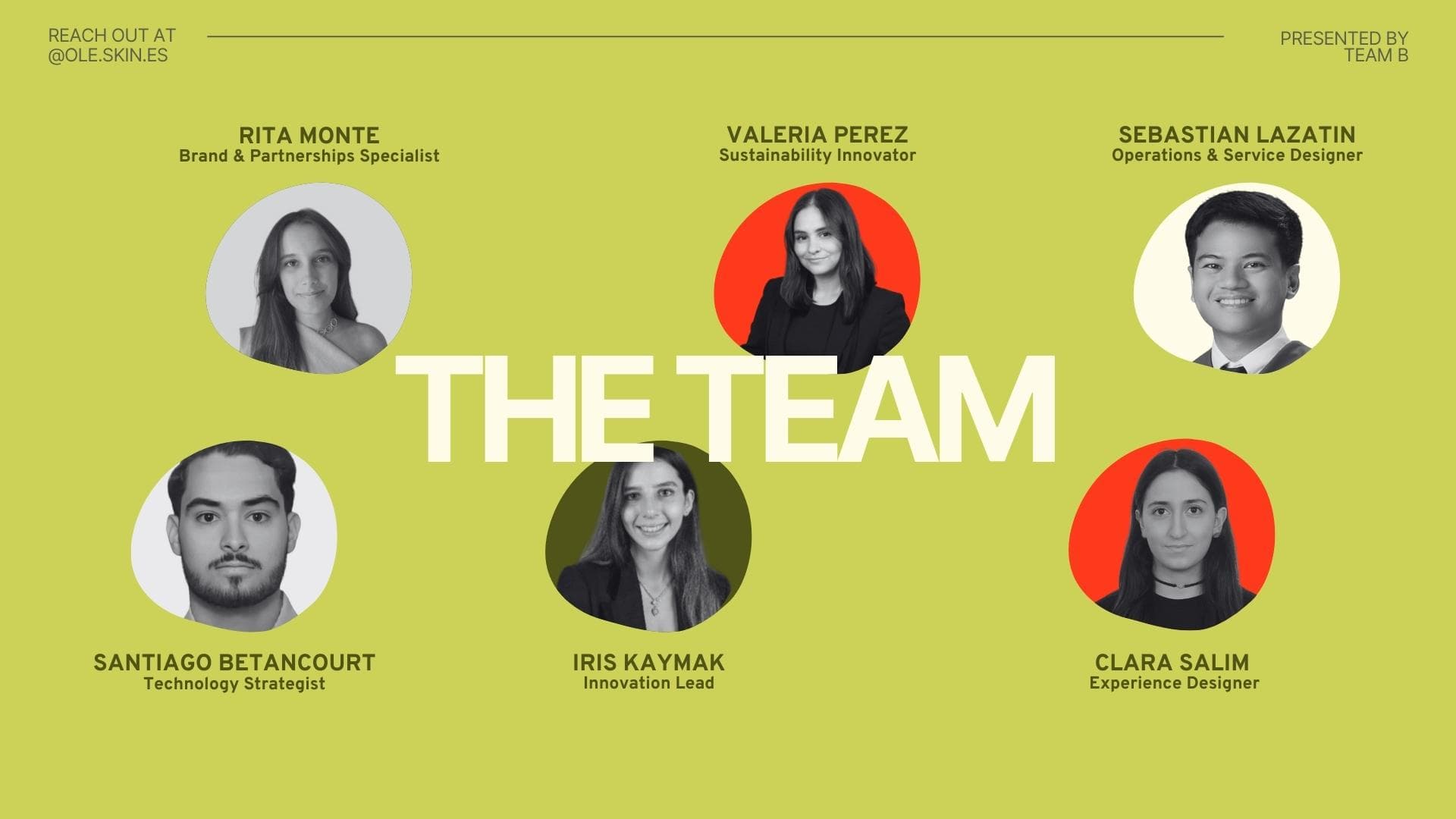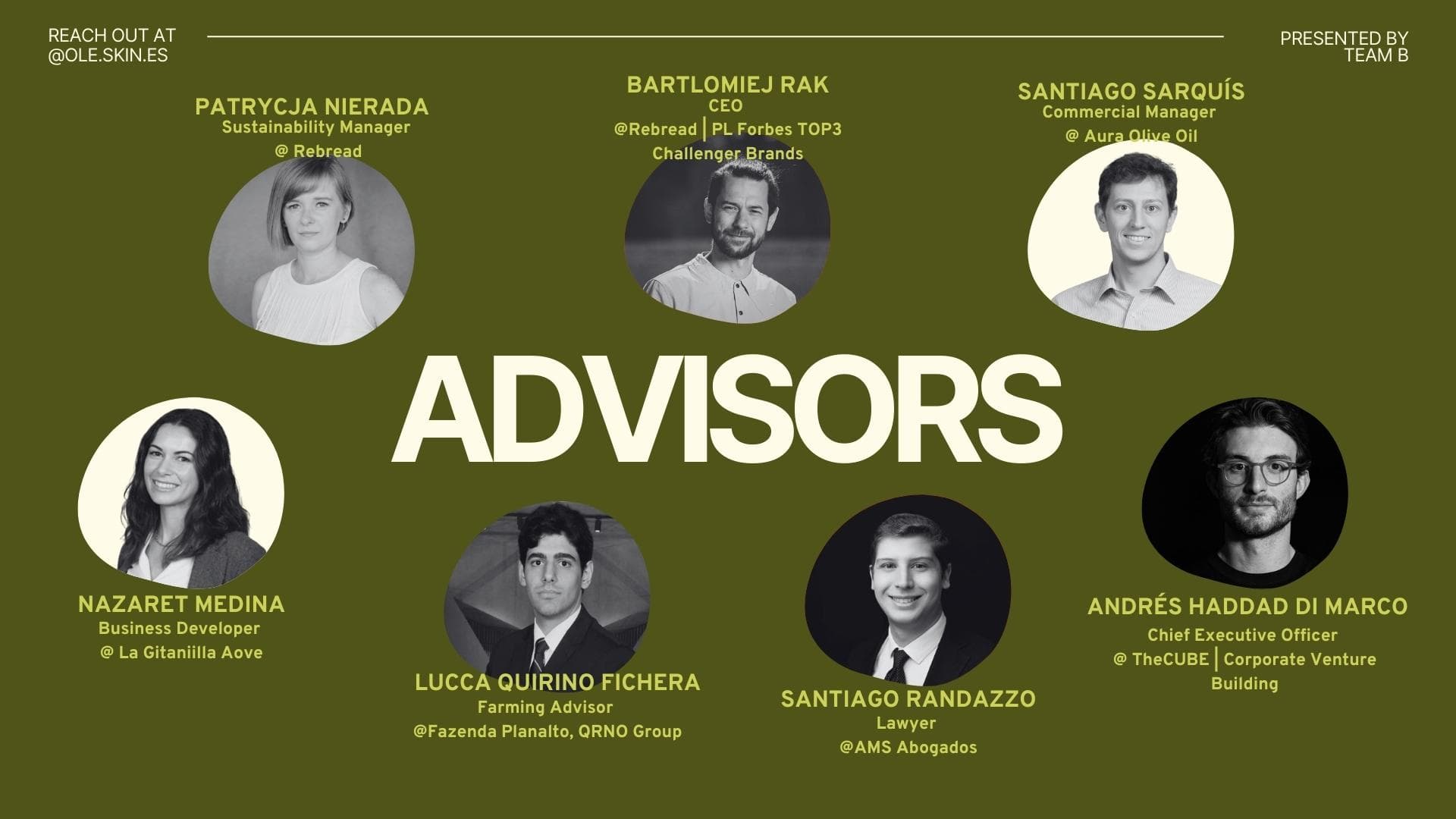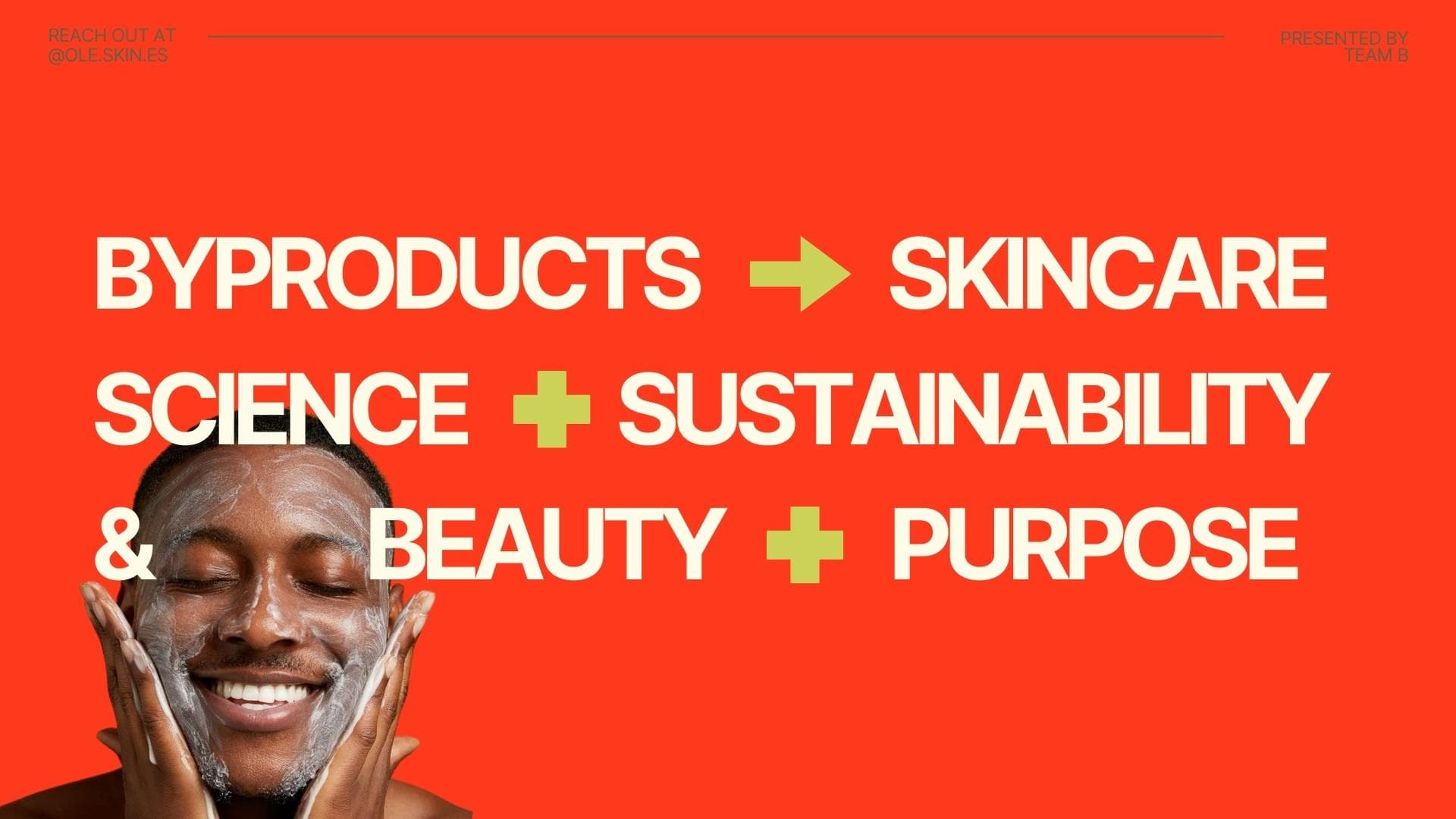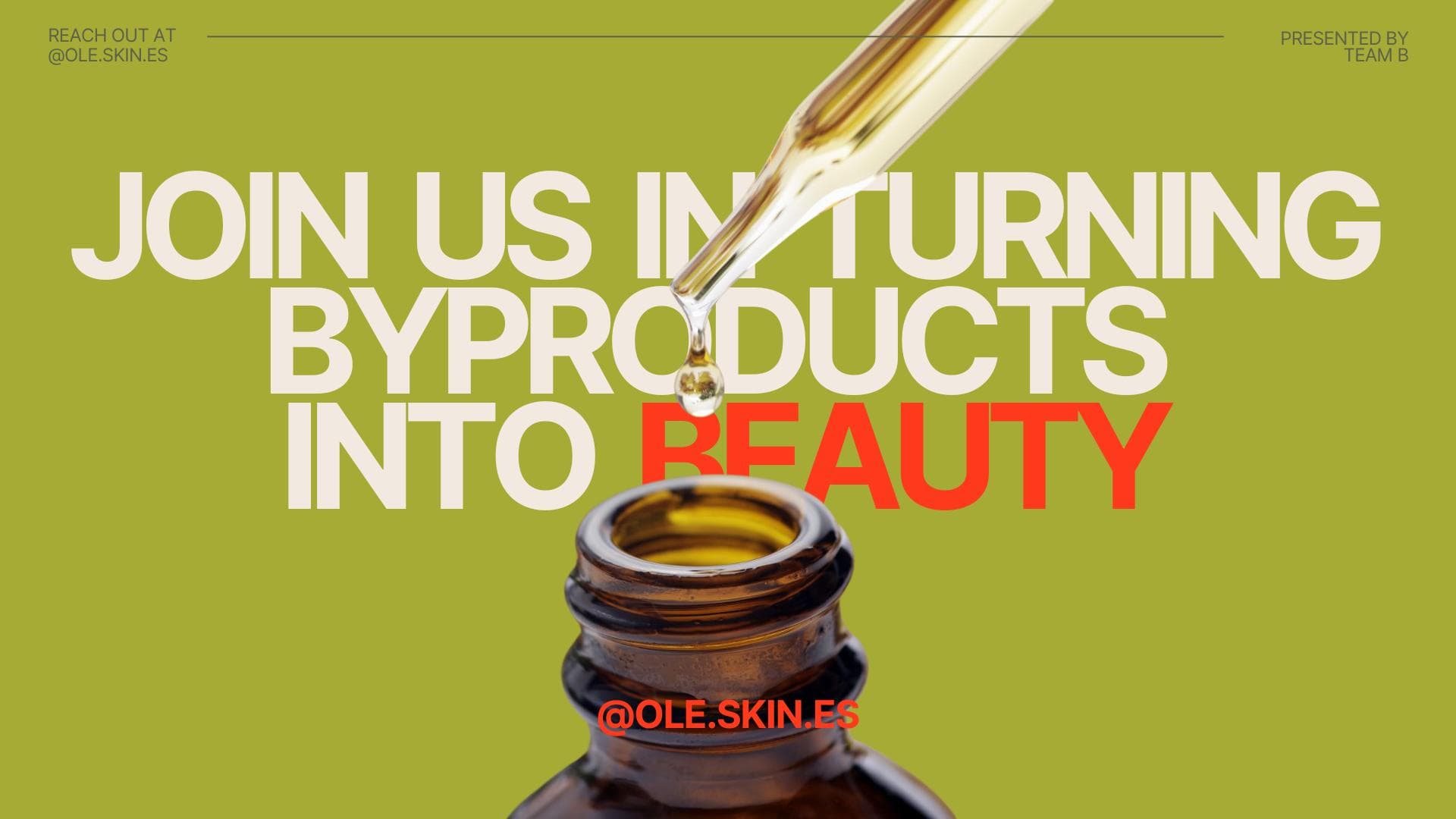Venture born from sustainable innovation and systems thinking
Strategic Venture Development and Customer Journey for a Sustainable DTC Brand
About the project
Olé is a skincare venture developed during the Sustainable Entrepreneurship Lab at IE Business School. The concept explores how circular design, behavioral science, and customer-centric innovation can converge to address food waste while creating a high-value direct-to-consumer (DTC) brand. The initial product line included a body lotion, scrub, and serum made with upcycled olive oil byproducts.
Challenge
Every year, vast amounts of food waste are generated from homes and the food industry. Simultaneously, consumers are increasingly seeking eco-conscious beauty products—but many still rely on well-known brands. Our challenge was to validate whether there was space for a new circular beauty brand that could offer premium quality, gain consumer trust, and educate customers on waste reduction through meaningful rituals.
Research and Insights
We combined qualitative research (interviews, personas, journey maps) with secondary data (market reports, regulation, cultural factors). Key insights:
Bulk buying and poor grocery planning lead to excess food waste.
Young professionals are open to sustainable products but hesitant about new brands.
Most consumers lack knowledge about how food waste can be reused.
There’s emotional value in products that align with purpose and aesthetics.
Solution
We designed a brand and service ecosystem around Olé:
Product concept: a skincare line made from upcycled olive oil waste.
Digital experience: DTC ecommerce with sustainability storytelling, quizzes, and loyalty programs.
Systemic approach: service blueprint for collection of used oil at home to incentivize circular habits.
Visual branding: warm, nourishing, and Mediterranean aesthetic to reflect natural origins and transparency.
Impact
Positive proof of concept with 58% of surveyed users willing to separate waste for beauty upcycling.
Strong interest in olive oil as a core ingredient due to familiarity and perceived quality.
Clear market positioning as a sustainability-driven, affordable luxury brand.
Final learnings
Olé revealed how circularity can move beyond materials into customer experience. Designing not just a product but a service journey allowed us to shape new behaviors. Emotional connection, usability, and ritualization were key to driving adoption. The project is ready for future development and piloting.
